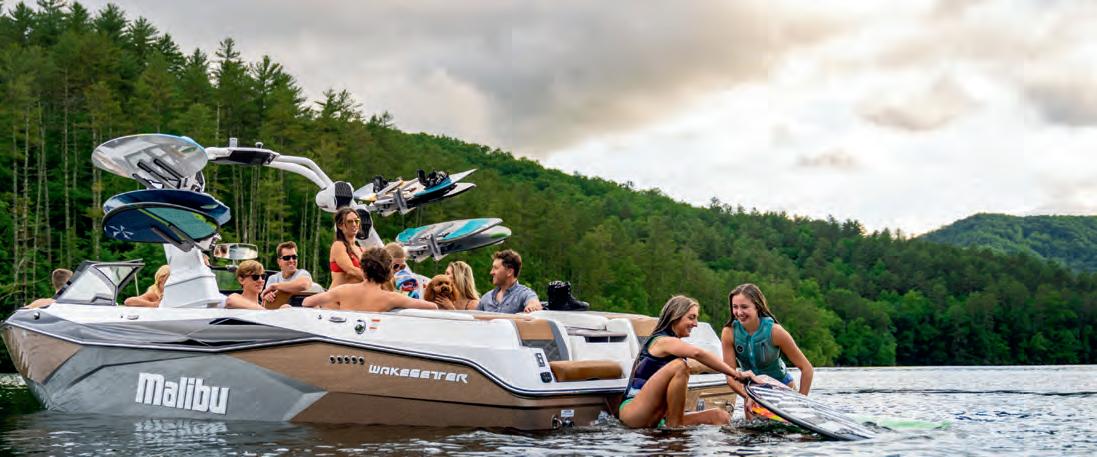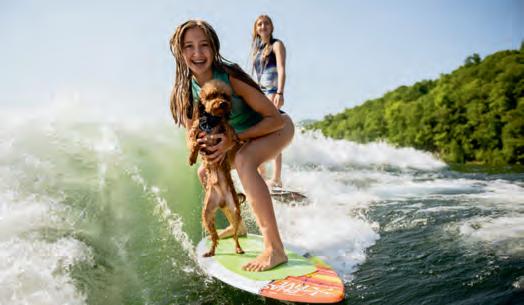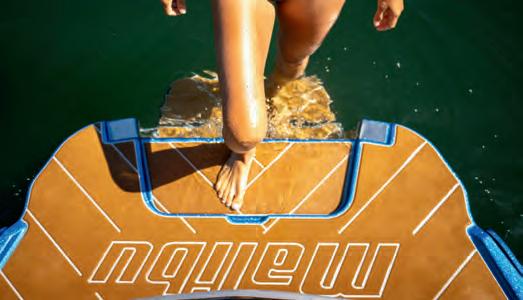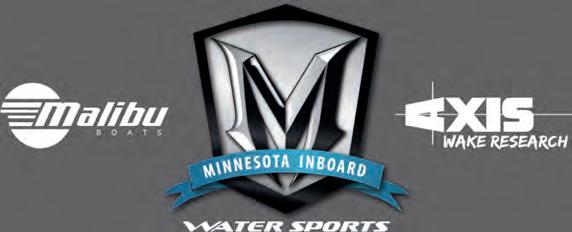LOVE LAKES OF THE
FOR
BLIND LAKE MYSTERY
ICE-OUT HISTORY
LAKE FORMATIONS
DUCK STAMP PROGRAM
LAKE STEWARDS
PUBLIC ACCESSES
BOATING ETIQUETTE
CROSS LAKE RECREATION AREA
LAKE ALEXANDER RESTAURANTS


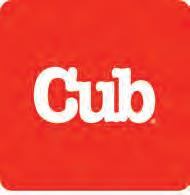



FOR
BLIND LAKE MYSTERY
ICE-OUT HISTORY
LAKE FORMATIONS
DUCK STAMP PROGRAM
LAKE STEWARDS
PUBLIC ACCESSES
BOATING ETIQUETTE
CROSS LAKE RECREATION AREA
LAKE ALEXANDER RESTAURANTS





We do have fun on our Minnesota waters no matter what the season, don’t we?

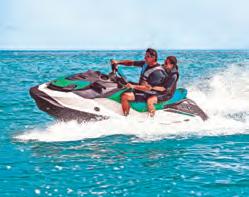
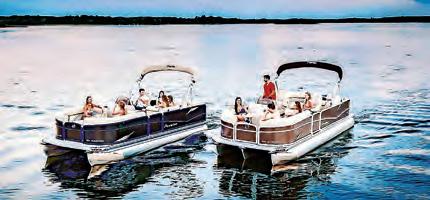
In 2015, we introduced a new feature to our Love of the Lakes magazine when we asked people to share photos of Fun on the Lake with their pets. The response we got led to this becoming an annual feature, and since then we’ve shared many photos depicting all the ways people enjoy our lakes.
Don’t miss pages 42-43 in this 17th edition of Love of the Lakes to see how our readers continue to love lake life.
While we appreciate everyone who shared their photos with us, unfortunately, we can’t fit all of them in this magazine. To see more shared photos of Fun on the Lake with our Readers, visit https://www. pineandlakes.com/community/love-of-thelakes-magazine-photo-galleries.
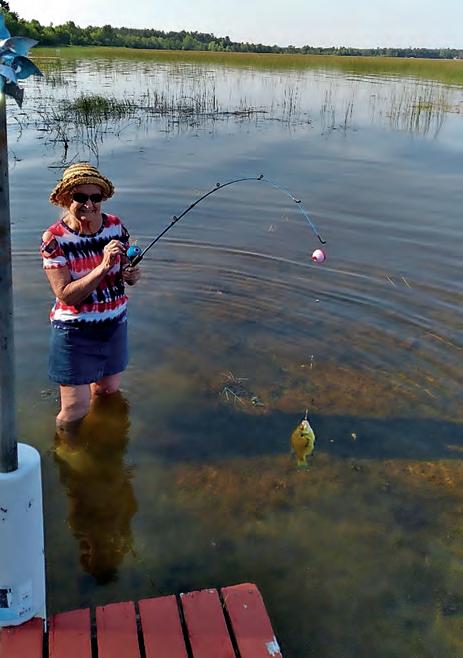
And be sure to save your summer and

winter lake fun photos to share with us next year.
Now, kick back and get comfortable with this latest edition of Love of the Lakes that explores our beloved lakes through a variety of wonderful stories.
You’ll learn how people can protect their shoreline to promote lake water quality and habitat as well as how to be a courteous boater. Find out how public accesses are maintained and thoughts about predicting ice-out dates.
Learn something new about our featured lakes - Blind Lake, Cross Lake and Lake Alexander.
And be sure to check out pages 49-56 to see detailed lake maps we’ve featured in past editions of Love of the Lakes.
Thanks for reading and supporting local journalism!


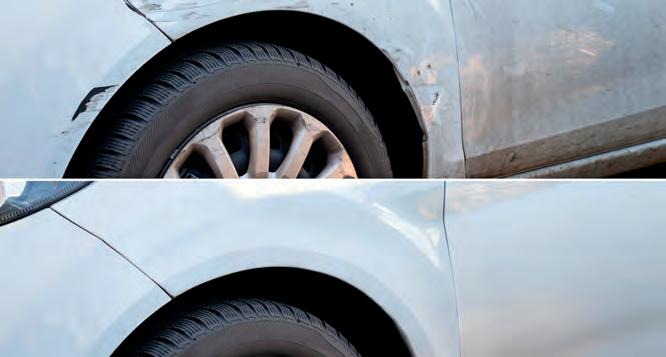
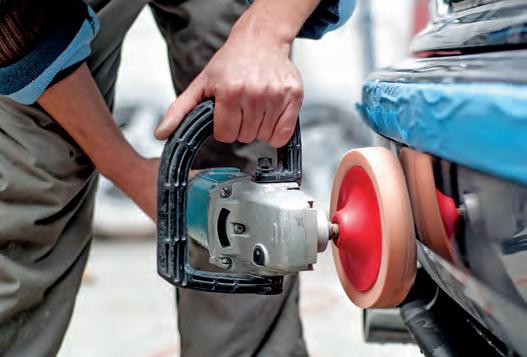



Location: Cass County, south of Longville
Area: 76.14 acres

Deepest Point: 20 feet
Shore Length: 1.41 miles
Fish Species: Black bullhead, black crappie, bluegill, brown bullhead, hybrid sunfish, largemouth bass, northern pike, pumpkinseed, walleye, yellow bullhead, yellow perch, central mudminnow, golden shiner.
Public Water Access: One ramp is located on the south end of the lake at the end of Fourth Street Northeast.
Interesting Fact: Blind Lake became part of a township in 1905, though at that time it was part of Wabedo Township. It wasn’t until Dec. 18, 1917, that Blind Lake became its own township. Authors Mary Krecklau, Cecelia McKeig and Renee Geving theorized that Blind Lake received its name because it is hidden between hills so well that it is hard to tell it is there until you crest the surrounding hills.
Sources include Minnesota Department of Natural Resources Lake Finder
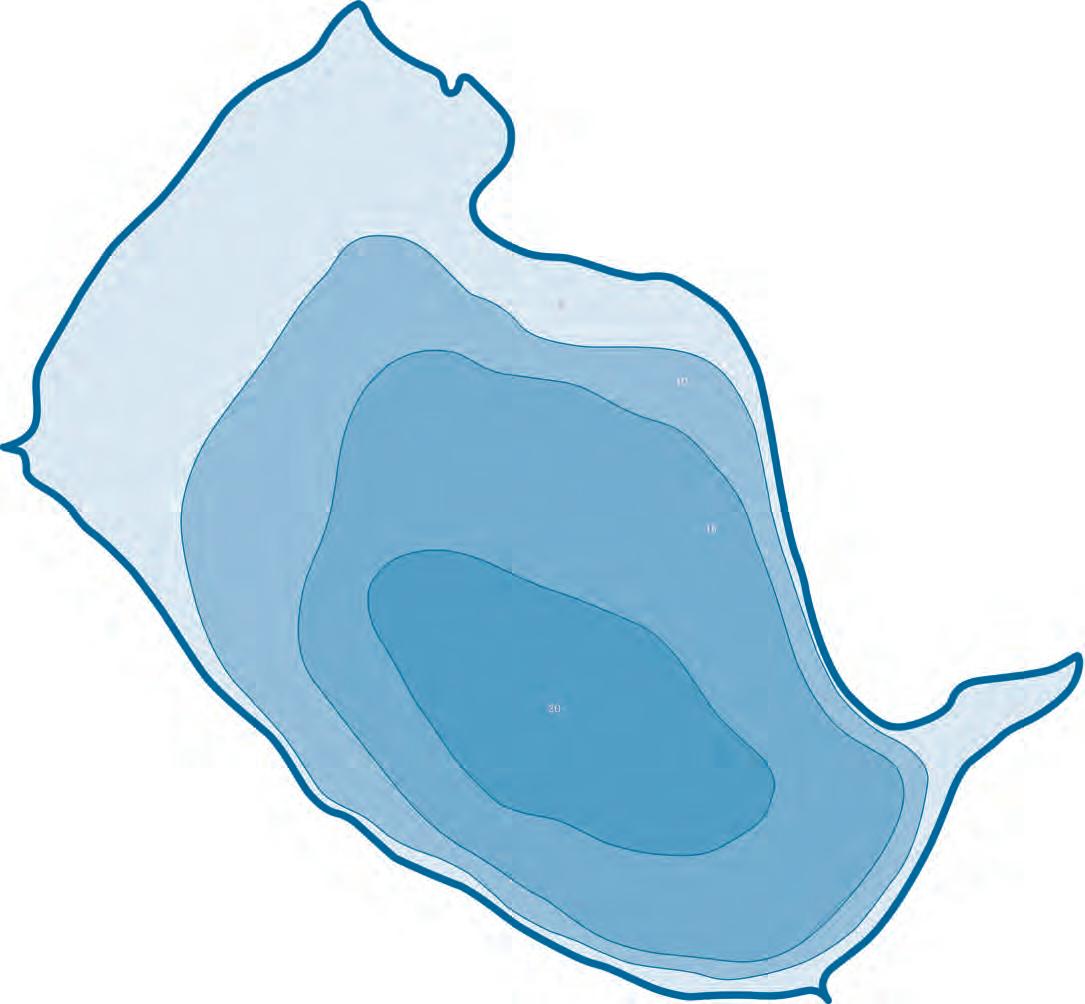
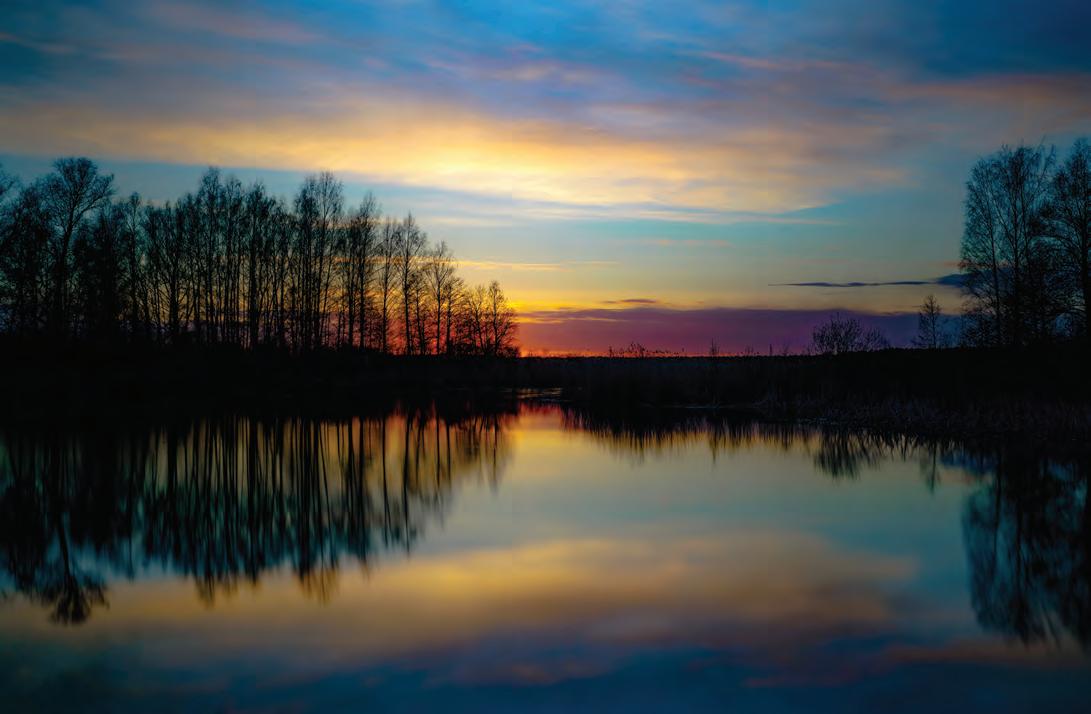
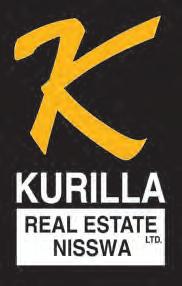
 By Travis Grimler
By Travis Grimler
Blind Lake, located in a Cass County township by the same name north of Cross Lake, is not very different from any of the lakes around it.
But it holds a long forgotten, deathly secret uncovered by three women documenting the history of the lake.
Lifelong Blind Lake resident Mary Krecklau joined forces with Cecelia McKeig and Renee Geving to document the history of the township and its people
Long after the Blind Lake Lumber Camp was gone, the trestles and piers built into Blind Lake and other area lakes to retrieve floating logs remained.
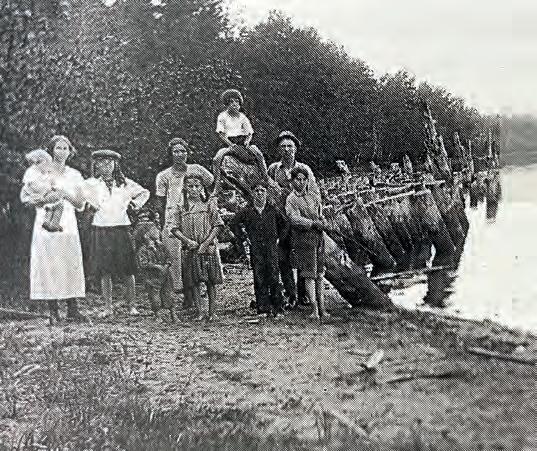
Contributed / "Blind Lake Township and Surrounding Townships"


ON THE COVER RIELYN MATICH, THE SON OF MATT AND MEAGAN MATICH, TAKES HIS FISHING POLE TO LAKE BELLE TAINE AT CAMPER’S PARADISE IN NEVIS.
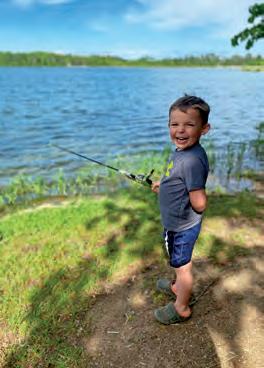
PUBLISHER
Pete Mohs pete.mohs@brainerddispatch.com
EDITOR
Nancy Vogt nancy.vogt@pineandlakes.com
ADVERTISING DIRECTOR
Susie Alters Eller susie.alters@brainerddispatch.com
EDITORIAL CONTRIBUTORS
Pete Mohs pete.mohs@brainerddispatch.com
Nancy Vogt nancy.vogt@pineandlakes.com
Travis Grimler..............................travis.grimler@pineandlakes.com
Dan Determan .......................... dan.determan@pineandlakes.com
Mike Rahn | Carrie Jennings
ADVERTISING STAFF
Susie Alters Eller susie.alters@brainerddispatch.com
Kathy Bittner Lee kathy.bittnerlee@pineandlakes.com
Stacey McSweeney .. stacey.mcsweeney@brainerddispatch.com
MAGAZINE DESIGN
Jamie Holte
MAP DESIGNERS
Katie Hastings, Sara Slaby, Nick Weisser
ADVERTISING: 218-855-5895 advertising@pineandlakes.com
PRODUCED BY PINEANDLAKES ECHO JOURNAL 506 James St., Brainerd, MN 56401 218-829-4705 www.pineandlakes.com
©2023 Echo Journal
No part of the material contained herein may be reproduced without prior written consent.
Printed by Forum Communications
Printing of Fargo, North Dakota
The Pineandlakes Echo Journal is a weekly newspaper covering the Pequot Lakes and Pine River areas and is owned by Forum Communications Company in Fargo, North Dakota.
Love of the Lakes combines stories with information and maps for different lakes in the area. We dedicate the magazine to the families and businesses around each featured lake or lake chain.
Sources for lake map information and statistics include the Minnesota Department of Natural Resources: http://www.dnr.state.mn.us
Contributed
“A three mile-spur was built going west into picturesque Blind Lake and extended out onto a wooden pier. Here, log booms were hoisted onto the log cars for the trip to Cross Lake. A camp was located on the southeast corner of the lake.”
- “Blind Lake Township and Surrounding Townships”
in a book titled, “Blind Lake Township and Surrounding Townships.”
They interviewed township residents to gather the history that surrounds the lake and scoured through newspapers and historical documents to fill in the blanks that human memory could not account for alone.
Before incorporation it started like Pine River, Backus and other communities as a site where loggers gathered during the state’s big logging boom. Not far to the south, the logging railroad was a bustling place near Cross Lake. The train ran some 10-15 miles north of Cross Lake before forking off into the lake itself.
The
Contributed / "Blind Lake Township and Surrounding Townships"
“A three mile-spur was built going west into picturesque Blind Lake and extended out onto a wooden pier,” “Blind Lake Township and Surrounding Townships” says. “Here, log booms were hoisted onto the log cars for the trip to Cross Lake. A camp was located on the southeast corner of the lake.”
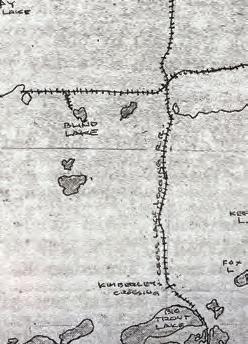
Just as water is necessary for life, in 1890
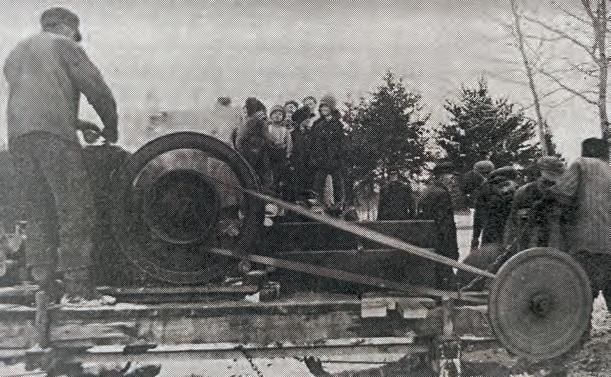 Heavy machinery changed the way logging in places like Blind Lake operated, but the machines were dangerous to operate. Work was still strenuous.
/ "Blind Lake Township and Surrounding Townships"
Cross Lake Logging Railroad connected the logging camp on Blind Lake to the Whitefish Chain where lumber would be shipped out for sale.
Heavy machinery changed the way logging in places like Blind Lake operated, but the machines were dangerous to operate. Work was still strenuous.
/ "Blind Lake Township and Surrounding Townships"
Cross Lake Logging Railroad connected the logging camp on Blind Lake to the Whitefish Chain where lumber would be shipped out for sale.
when the Blind Lake camp started, it was a vital part of transporting the heavy lumber out of the wooded northland to more bustling communities where it could be converted to cash.
According to “Blind Lake Township and Surrounding Townships,” lumber camps like the one on Blind Lake would employ 80-100 loggers who made their home at the camp for extended periods of time.
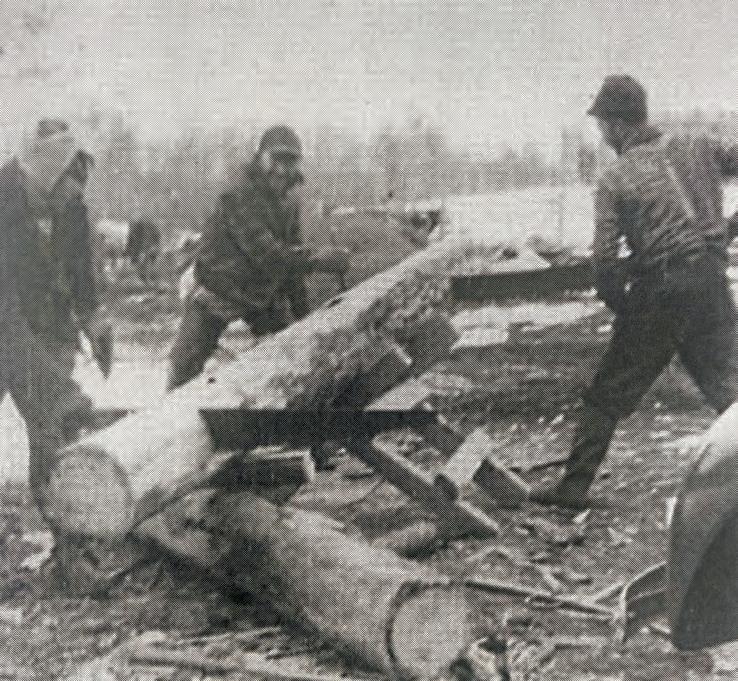
“These camps were built and moved as the timber around them was exhausted. Some of the better-known camps were located at Blind, Inguadona, Girl, Wabedo and Pine lakes,” the book says.
The Blind Lake camp was operated by L.G. Cook, who also operated two others.
“They logged around Blind Lake nearly four winters,” the book says. “Maurice Peterson was clerk of Camp #2. Oxen were used for hauling as late as 1894 — the loads averaged 5,100 feet. The Blind Lake spur was built out onto the lake on a wooden pier about two feet above the water level.

“Here logs boomed on the lake were hoisted out and placed on the log cars for the trip to the Cross Lake dump,” the book says. “During the course of operations at Blind Lake, equipment was either lost or
Logging remains an important Minnesota career. It was once one of the biggest industries in the area and created logging camps like the Blind Lake camp with 80-100 employees living there.
Contributed / “Blind Lake Township and Surrounding Townships”
discarded into the lake around the pier. Some objects recovered from the lake were peavey poles, bridge and track spikes, parts of a locomotive, flat car, coupling pins, links, and a coupling bumper. They were hard to retrieve as there (is) at least two feet of bark accumulated beneath the trestle.”
The Northland Pine Company, in charge of the camps, paid $35 per month with board to loggers. Hoisters, who were in very short supply, earned $2.50 per day plus board back as far as 1906.
The existence of the camp served as an economic boon for more than just the company and its laborers. As a result, people came to provide for the growing customer base resulting in new farms, stores and more to feed and be paid by the loggers.
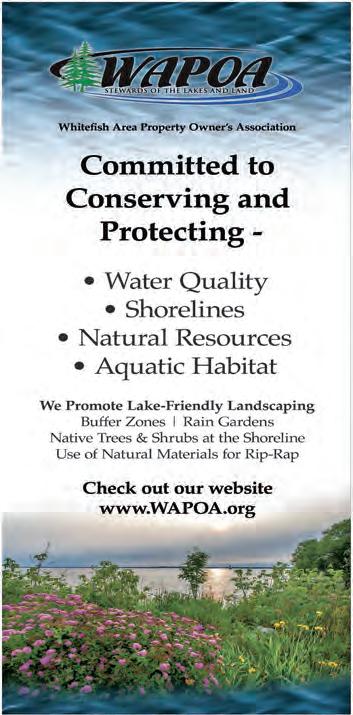
“John Strauch, a farmer, contracted 1,000 bushels of potatoes to Northland Pine Company at 40 cents a bushel,” the history book says. “The company is also buying hay at prices from $3 to $5 per ton.”
The suddenly swelling population of settlers didn’t always result in great relationships with the nearby Native Americans.
In July 1894, around the end of the camp’s lifespan, a man named Andrew Leighton was in charge of watching stock at the camp until he went missing.
“Mr. Leighton was employed by L.G. Cook at his camp on Blind Lake as a watchman, looking after the stock and taking care of things generally during the summer months. When the haying crew went up in July 1894, Mr. Leighton was not there, but as his gun was gone, it was supposed he was on a hunting expedition. As the days passed by, and he did not return, the men became suspicious that there had been foul play,” the book says.
He was missing without a word for five weeks before even a single tip was uncovered. It seemed Leighton ran afoul of some local Native Americans, according to an Aug. 22, 1894, article in the “New Ulm Review,” as reported by the Blind Lake book.
“One Indian (identified as Skunk in the article) told a friend of his that the Indians had killed him and sunk his body in the lake,” an Aug. 25, 1895, Brainerd Dispatch article, quoted in the book, read. “Warrants have been issued and officers started Monday to capture the murderers.”
Officers theorized that Leighton was murdered in the act of stealing the supplies and goods at the camp. Several attempts were made to find the missing man, including dragging the lake, but only nature itself would solve the mystery of the unfortunate Mr. Leighton.
Leighton’s remains finally surfaced 13
months after he went missing and were found floating in the lake. He had a chain loosely wrapped around part of his body and it appeared at one time chains were also wrapped around his wrists, until decomposition set in and they came off.
“The chains around the body were not sufficiently heavy to keep the body down after the hands were released,” the Dispatch article said.
Though decomposition was advanced, Leighton’s brother from Minneapolis was able to identify him by a scar on his leg and a pocket watch chain, but not watch. The remains were temporarily buried in the north to keep them until colder temperatures set in and he could be returned home in November.
Authorities later revealed that their most likely suspect had died in the year since Leighton first went missing, because of an unrelated, violent encounter at a nearby ranch.
The Blind Lake history book describes a document from Park Rapids on Aug. 21, 1894, that read: “Details of the fight between whites and Indians at (James) Curo’s ranch are beginning to come in. A few Indians tried to carry off a sack of flour from Curo’s store without paying for it. Curo objected and a scuffle ensued, in which Curo was getting the worst of the fight.
“His son John picking up a rifle struck an Indian over the head, the lock sinking into his skull. The Indians went to Leech Lake reservation, threatened to get help and kill the settlers on the border of the reservation. Parties came in early this morning and purchased large quantities of ammunition to take back. Dr. Cutler has gone out to attend the injured Indian,” the book says.
The above James Curo was the first postmaster, ranchman and merchant of Hackensack, who, together with Bye Bartlett, named the town of Hackensack after their former hometown, according to the “Celebrating 100 Years” Hackensack centennial book, though records on geneaology.com claim Curo came from Maine.
“Legend has it they named the town after Hackensack, New Jersey, because the mosquitos were as numerous and big as in their home town,” the Hackensack book says.
This injured Native American may be the same one later referenced in the 1895 Brainerd Dispatch article, left fatally injured in the Curo incident in Hackensack.
“They logged around Blind Lake nearly four winters. Maurice Peterson was clerk of Camp #2. Oxen were used for hauling as late as 1894 — the loads averaged 5,100 feet. The Blind Lake spur was built out onto the lake on a wooden pier about two feet above the water level. ”
- "Blind Lake Township and Surrounding Townships"
“This man is said to have confessed just before his death that he had killed a man at Blind Lake, weighted his body with chains and sunk the body in the water, and that he took his watch but afterwards threw it in the lake for fear someone would know it,” The Dispatch article read.
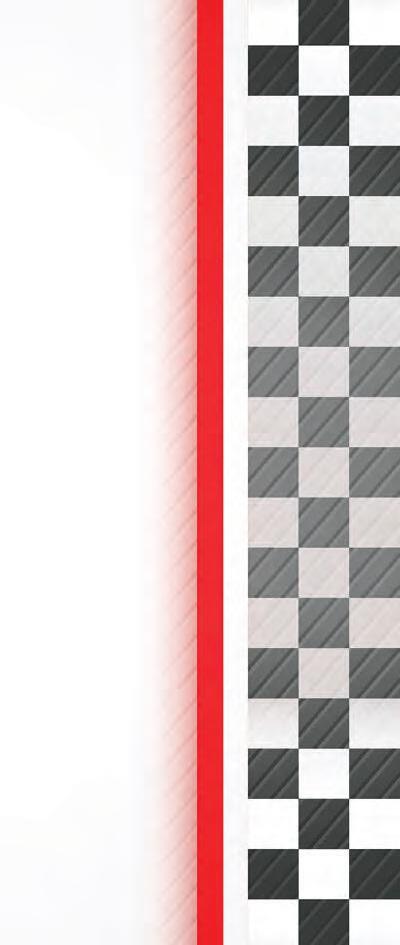
If the confession was accurate, it matched closely the mode by which Leighton was disposed of. The account included details not widely known until Leighton’s body was found, specifically, the lack of a pocket watch and the means by which he was weighed down.
Another Native American implicated in the incident was reported dead by drowning in
Leech Lake the spring of 1895.
Either by coincidence or out of caution, the Blind Lake Camp closed operation not long after Leighton’s death. Prior sources indicated the camp operated for approximately four years following the 1890 founding.
Since its incorporation, the township developed and grew into its own tight-knit community, complete with several school houses, churches and the ill-fated Spurrier Hotel on the shore of Blind Lake, owned by William Spurrier Jr., who blew up the hotel and himself with dynamite.
Many memories have been made in the community since then, whether they be Krecklau’s family catching bluegills in the
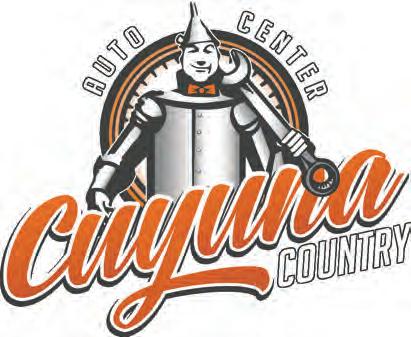
water that washed out one of the township roads during recent floods or ice skating on the lake.
If not for a trio of history seekers, these memories and the story of the year-long, dark secret hidden beneath Blind Lake’s surface could have been lost forever.
Now, good and bad, these stories are immortalized in a small book about how the township became a community.
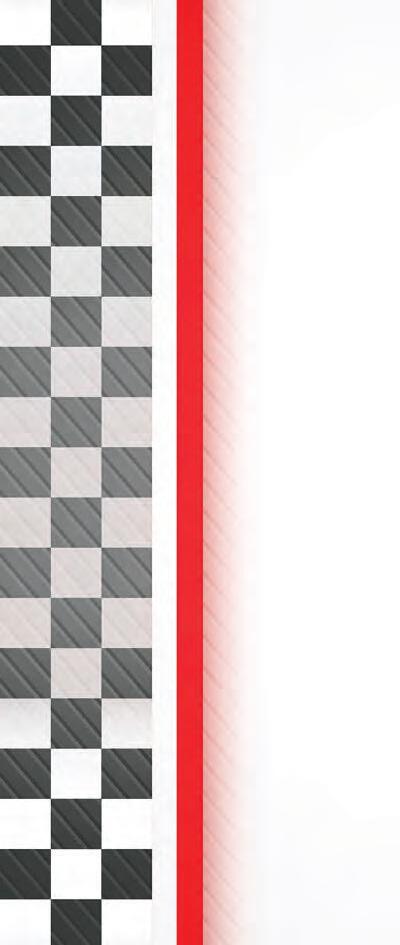
TRAVIS GRIMLER, is a staff writer for the Pineandlakes Echo Journal weekly newspaper in Pequot Lakes/Pine River. He may be reached at 218-855-5853 or travis.grimler@pineandlakes.com.
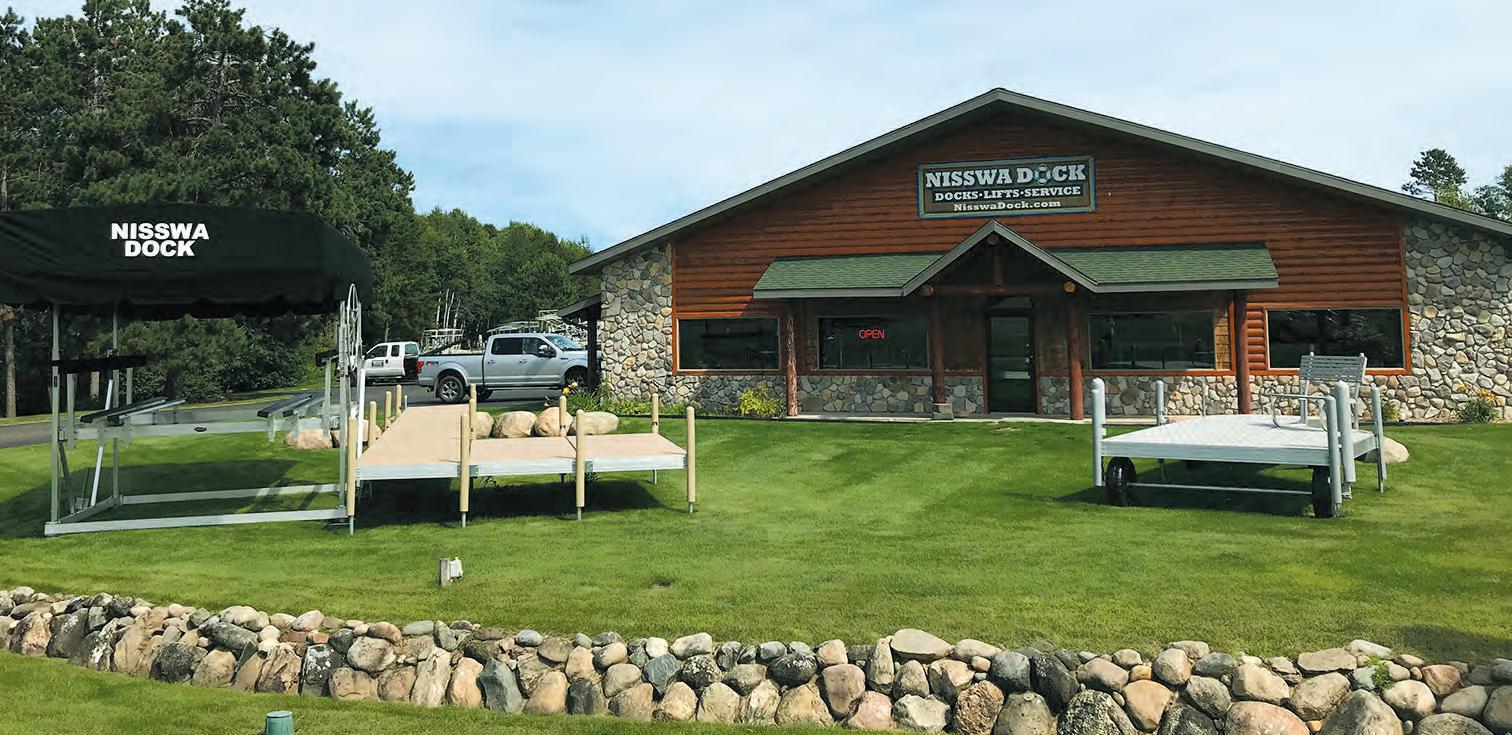
Area: 9,947 acres
Deepest Point: 80 feet, 30 percent of the lake is 15 feet deep or less
Homes Per Shoreline: 27.8
Defining Characteristics: The Gull Chain of Lakes, for which Gull Lake is the namesake and largest member, is a collection of a number of connected lakes and two bays: Gull Lake, Upper Gull Lake, Nisswa Lake, Roy Lake, Margaret Lake, Spider Lake, Spring Lake, Love Lake, Round Lake, Bass Lake, Steamboat Bay, Wilson’s Bay.

The chain collectively covers 13,000 acres and its shores host over 2,500 homes. The chain spans across Cass County, MN and Crow Wing County, MN.
Water Quality: Mesotrophic - clear water with occasional algal blooms in late summer.
Number of aquatic plant species:
Over 35 species
Invasive Species: Zebra mussels

Fish: Panfish, largemouth & rock bass, northern pike, walleye, bluegill, crappie, tullibee, yellow perch
Public Accesses: East shore off County Road 115; north end of Boomingout Bay near Upper Gull Lake; off County Road 70 near dam; on northwest side off County State Aid Highway 77.
Sources: Minnesota Department of Natural Resources, minnesotalakes.net and Wikipedia
The U.S. Army Corps of Engineers Gull Lake Recreation Area is tucked back off Gull Lake with many offerings, including camping, boating, hiking, fishing and swimming.
The campground, located on the Gull River at the outlet of Gull Lake, has wellspaced wooded sites, each with 50 or 30 amp electric hookups service, picnic tables and campfire rings, along with a centrally located shower house.
Right at the dam, there are picnic tables and a playground for children.
A boat launch is available for anglers and boating enthusiasts. There’s also a swimming beach with picnic tables and grills.

Those who enjoy hiking can walk the self-guided interpretive trail for a short hike with wildlife watching, scenic overlooks and geocaching opportunities.
The Gull Lake Dam is located on the Gull River about 1/2 mile below the outlet of Gull Lake. It was put into service in 1912, the last of the Headwaters reservoir dams constructed.
A timber dam preceded the current structure. The designers were Colonel Francis R. Shunk and George Freeman. This team also designed Lock and Dam No. 1 built on the Mississippi River between Minneapolis and St. Paul in 1917.
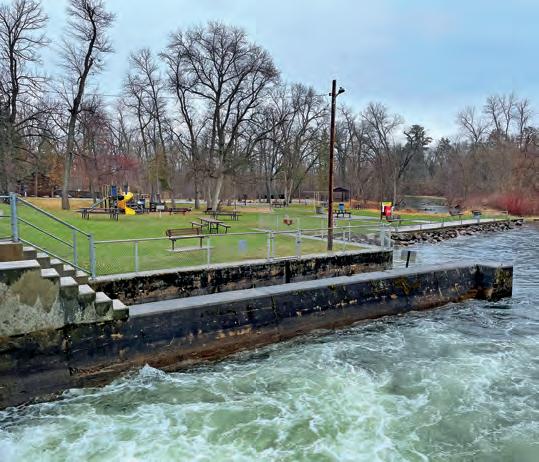
The control structure is built of reinforced concrete supported on timber piling. There is a log sluice and a 5-foot fishway in addition to five sluiceways. The fishway is no longer useable and has been closed off.
The seven-room dam tender's house, completed in 1912, is of concrete and beam construction. The exterior is finished with concrete panels. It is a good example of the then popular "Craftsman" style of architecture.
One characteristic of the style is its "honest," straightforward treatment of materials. Brick, stucco and frame Craftsman
style houses were built in many Minnesota cities and towns between about 1905 and 1920. The exposed rafter ends at the eves, grouped windows, and simple board trim are notable details associated with this style. The dam tender's house is eligible to be listed on the National Register of Historic Places.
The prehistoric archaeology of the Gull Lake dam site is of particular significance. There are twelve complete and several
The Gull Lake Recreation Area features the dam, benches, playgrounds, grills, a campground and more.
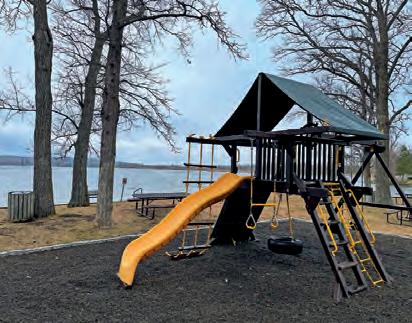 Nancy Vogt / Echo Journal
Nancy Vogt / Echo Journal
partial burial mounds, representative of the Woodland Culture that established permanent villages in this area about 800 B.C.-A.D. 200 and A.D. 600-900. Archaeologists have studied the burial site, and an interpretive display provides information for visitors. The burial mounds are listed on the National Register of Historic Places.
Sources: U.S. Army Corps of Engineers St. Paul District website (http:// www.mvp.usace.army.mil); Gull Chain of Lakes Association website.
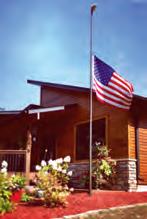
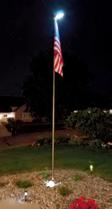
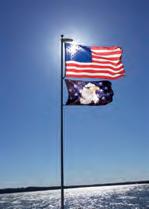
 By Dan Determan
By Dan Determan
The hundreds of lakes in the area attract thousands of boaters every summer. While most boaters steadfastly adhere to the rules of the water – both written and unwritten –some reminders about boater etiquette are often needed.
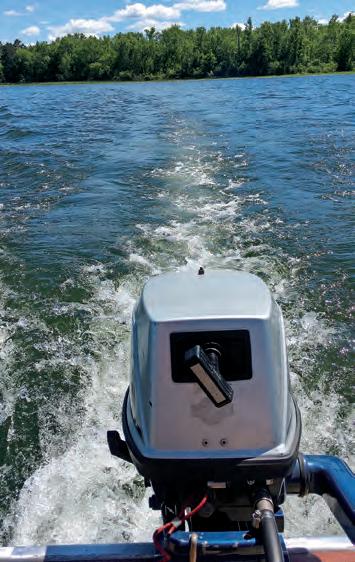

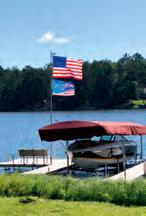
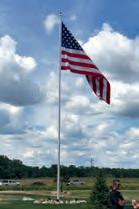
For Minnesota Department of Natural Resources Conservation Officer Jim Guida, etiquette while fishing, wakeboarding or simply using a lake’s access is no different than the etiquette one should have at home, work or any other place.
“It goes back to the golden rule – treat others like you want to be treated,” Guida said. “If you are fighting over a fishing spot or you are complaining about somebody that’s too slow at the landing or things like that, just understand that everybody’s
situation may be a little different. Offer to help.”
Etiquette goes beyond giving another boater space or showing a bit of patience. It must also include consideration of how one’s actions on the water affects others, even if they are not particularly close.
“‘Boater etiquette’ also means controlling your wake,” Guida said. “If you are driving a boat at a high rate of speed around nonmotorized watercraft – and they are at risk of capsizing or damage by your wake – you are accountable. … If your wake is destroying the shoreline or harassing wildlife or harassing boaters, you have to be accountable to that.
“We understand that wakeboard boats are very popular, and it is very, very common to see wakeboard boats on Minnesota lakes,” Guida said. “If they operate within the guidelines of state law, they have an opportunity to utilize a lake as a form of recreation just like an angler has to catch fish, a sailboat has to sail or a canoeist to paddle. All of those things need to work together.”
Guida encourages those boaters to use a less-populated area of the lake whenever possible.
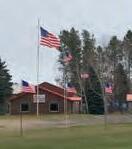


Of course, being the best boater one can be also means checking your gear for stowaways, as the issue of aquatic invasive species becomes more of a problem in the area.
“We always want to clean, drain and dry boats prior to and when leaving water,” Guida said. “Any bait that’s retained needs to be placed in a separate quantity of water that has not been on that lake, and that helps slow the spread of aquatic invasive species.”
Though invasive species are present in many area lakes, Guida said boaters have become much more aware of the situation, and much more cautious about spreading them to other bodies of water.
“I think it is becoming common practice now to remove the drain plug when leaving a lake and drain all the water off the boat,” Guida said. “That’s good because it is preventative, and one measure I think people
need to continually be vigilant about.”
Guida said boaters need to remember to consider the needs of those in their own watercraft as well.
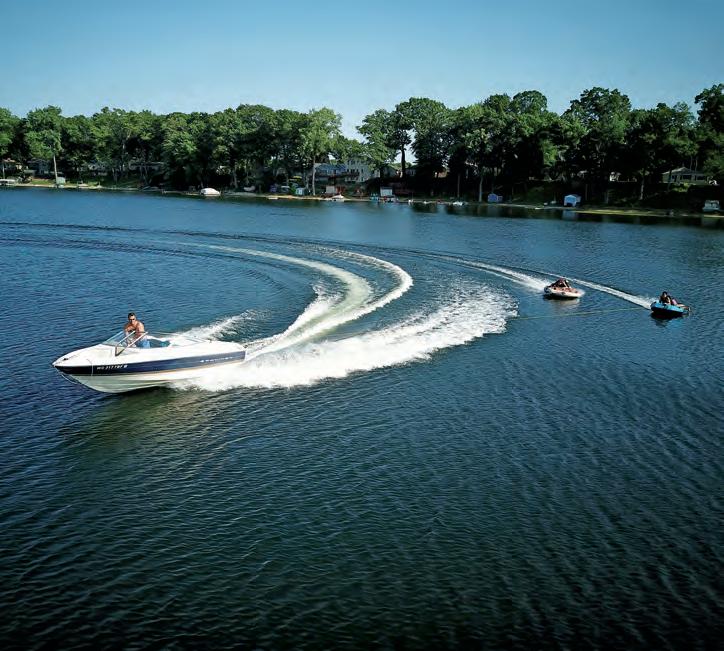
“I think one of the most important rules in the early fishing season as always, is make sure you have plenty of life jackets on board for yourself and all the occupants,” Guida said. “Additionally, one throwable Type-4 (personal flotation device) is required for boats that are 16 feet or greater.
“If you’re planning on fishing after dark, make sure your navigational lights are functioning, including a 360-degree white light to the rear and a green and red light to the port and starboard,” he said.
Having proper-fitting life jackets is especially important shortly after ice-out, when the water is still cold and the risk of drowning is much higher.
“Buy a comfortable life jacket so you don’t have any problem wearing it. … When you have the life jackets drying off on the clothesline, or somebody uses a boat cushion to sit on at a baseball game, you want to make sure that that equipment gets put back in the boat prior to launch,” Guida said.
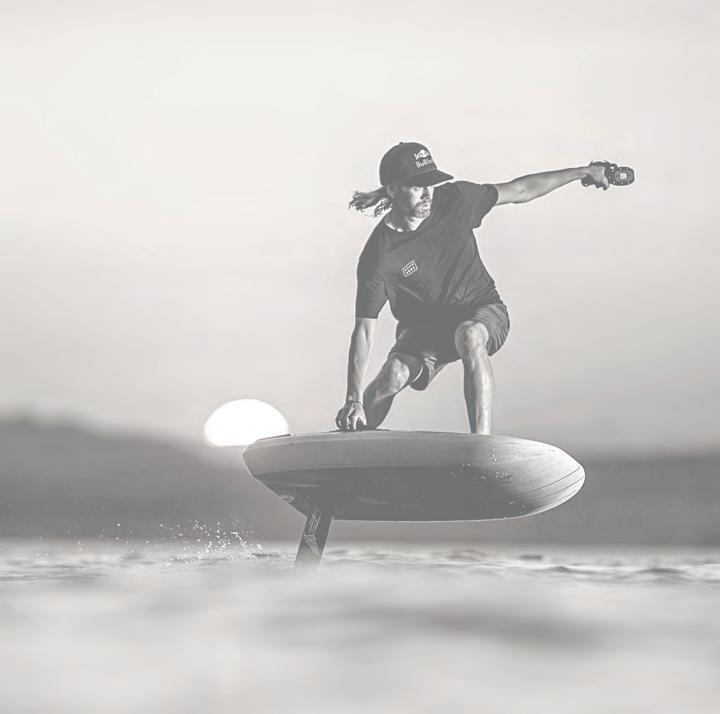
“The boat owner is ultimately responsible, but as an adult, we all have a responsibility to make sure that the boat has the required equipment on it before it leaves the dock,” he said.
DAN DETERMAN, is a staff writer for the Pineandlakes Echo Journal weekly newspaper in Pequot Lakes/Pine River. He may be reached at 218-855-5879 or dan.determan@pineandlakes.com.
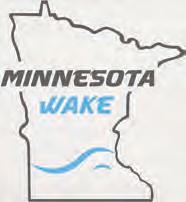
“It goes back to the golden rule – treat others like you want to be treated. If you are fighting over a fishing spot or you are complaining about somebody that’s too slow at the landing or things like that, just understand that everybody’s situation may be a little different. Offer to help.”
- Jim Guida, conservation officer
Location: Northwest of the city of Crosslake
Area: 1,815 acres

Deepest Point: 84 feet
Shore Length: 21.85 miles
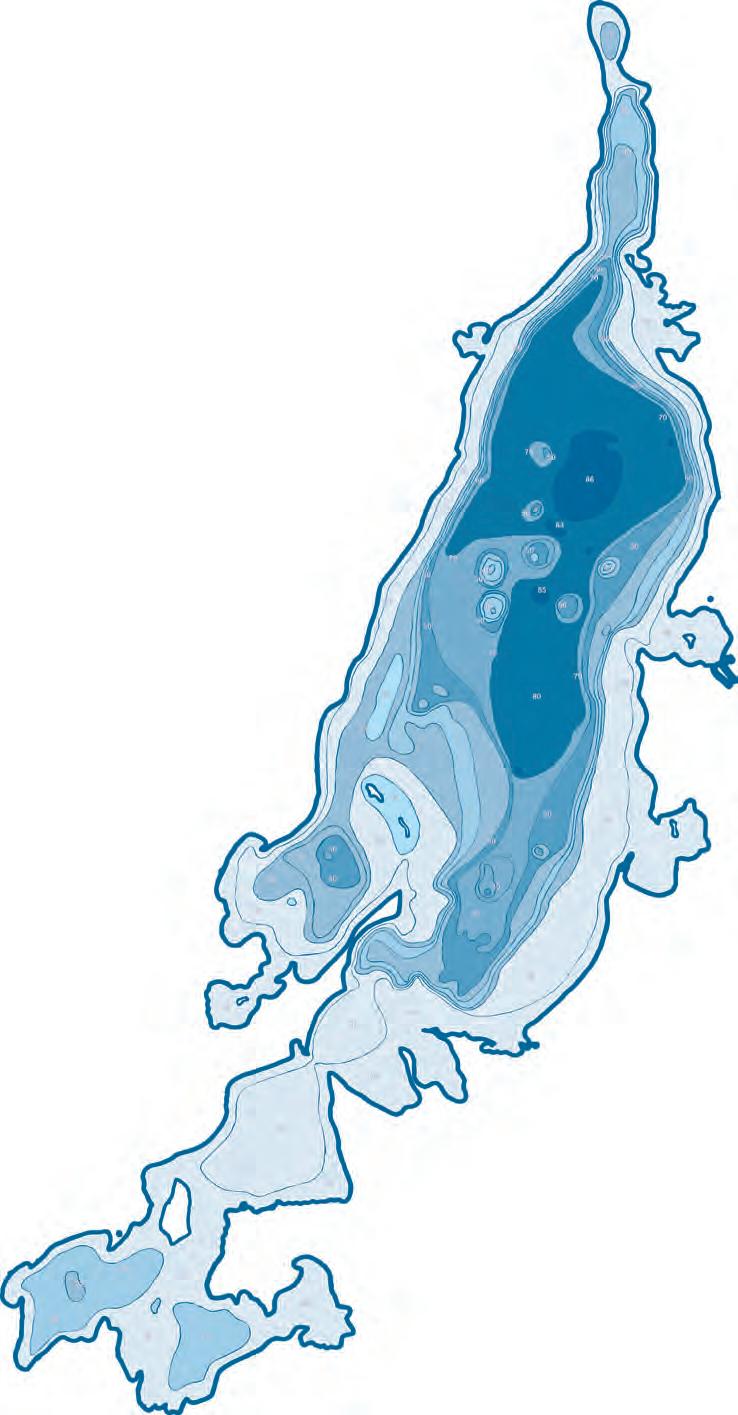
Fish Species: Black bullhead, black crappie, bluegill, brown bullhead, burbot, green sunfish, hybrid sunfish, lake whitefish, largemouth bass, northern pike, northern sunfish, pumpkinseed, rock bass, smallmouth bass, tullibee (cisco), walleye, yellow bullhead, yellow perch, bowfin (dogfish), greater redhorse, redhorse, shorthead redhorse, silver redhorse, white sucker, banded killifish, blackchin shiner, blacknose shiner, bluntnose minnow, central mudminnow, common shiner, fathead minnow, golden shiner, Iowa darter, Johnny darter, least darter, logperch, mimic shiner, spotfin shiner, spottail shiner.
Public Water Access: Back in access off W Shore Drive, a back in access at the campgrounds off County Road 66 and a back in access off of Robert Street.
Interesting Fact: The Crosslake Lumber Company was the hub of many lumber operations from the 1890s until 1910. Tracks from Cross Lake spiderwebbed outward into undeveloped forest throughout the area. Logs from places including the Blind Lake logging camp would go to Cross Lake where they would then be sent by river to Brainerd, Little Falls, St. Cloud and St. Paul to mills where they would be processed into lumber. (From “A Taste of History: Tales and Tastes of the Crosslake Area Past”).
Sources include Minnesota Department of Natural Resources LakeFinder
Every summer, families pack into the 121site campground at the Ronald L. Cloutier Recreation Area, better known as the Cross Lake Recreation Area.

The playground, two beaches and wooded location have provided generations of memories to locals of the Brainerd lakes area and visitors who come to enjoy its beauty.
The U.S. Army Corps of Engineers has managed the site on the shore of Cross Lake for well over a century.
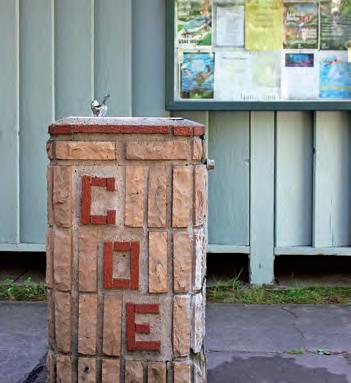
The original timber dam on the Cross Lake outlet of the Pine River was constructed in 1884 and began operation in 1886.
Before the dam, Lower Whitefish Lake, Rush Lake and Cross Lake were connected by the Pine River, rather than the channels that connect them today.
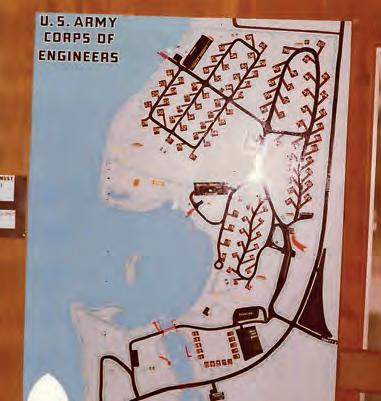
The damming and the construction of additional perimeter dikes raised water levels, creating the Whitefish Chain of Lakes as it is known today.
The Army Corps built various structures during the dam’s construction, and a dam tender’s dwelling remained until 1959, when a fire destroyed it.
It wasn’t until 1954 that the community began to enjoy the site.
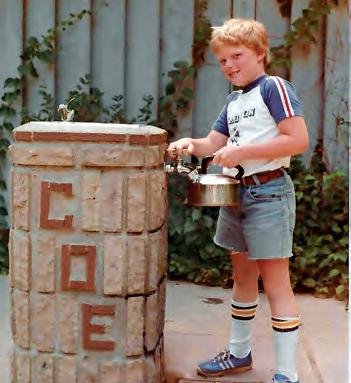
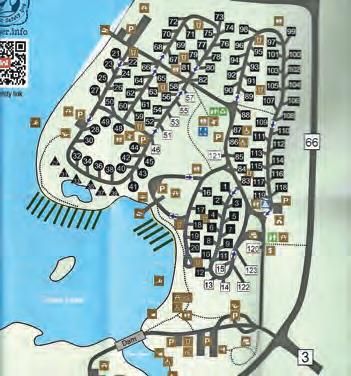
Back Then
history dates back to 1884 when the first dam was built
Campers and locals still take swimming lessons at the beach, just like children did in 1989. The swimming area now is smaller, and there is no floating raft.
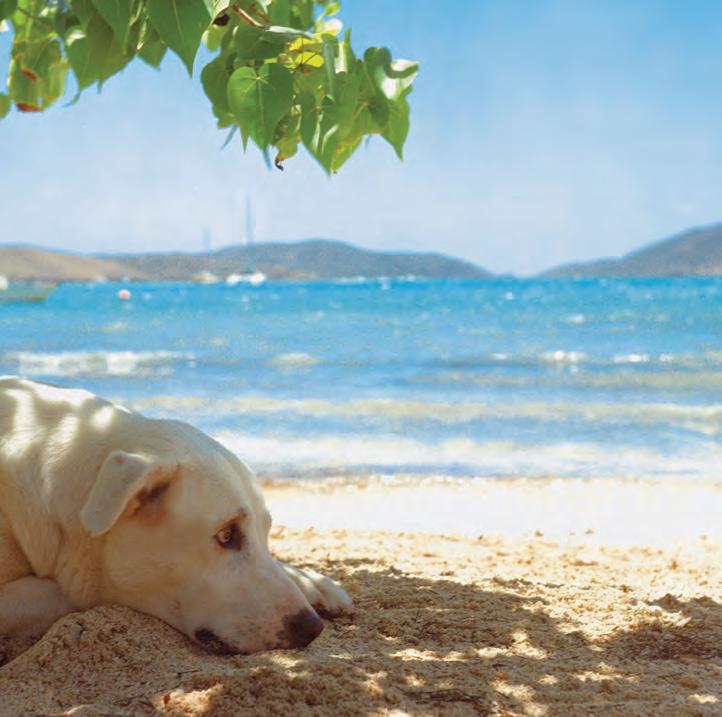
The swimming area at the Crosslake campground has remained largely unchanged since the early 1980s. Changes include adding a retaining wall, paved sidewalks and a slightly smaller buoyed swim area.
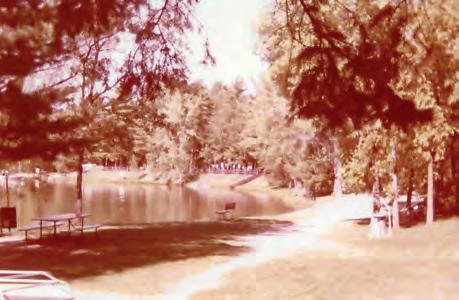
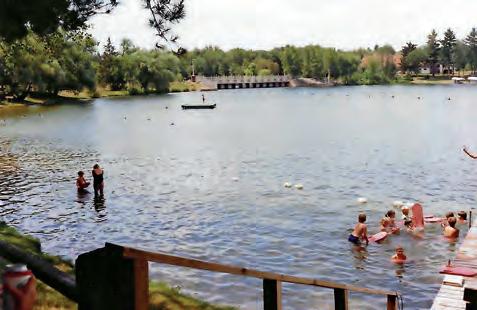
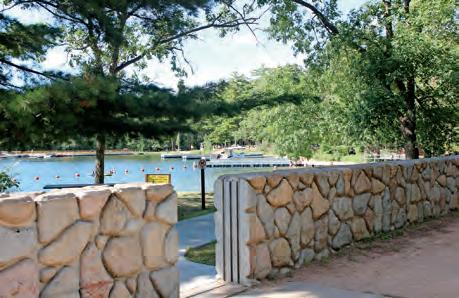
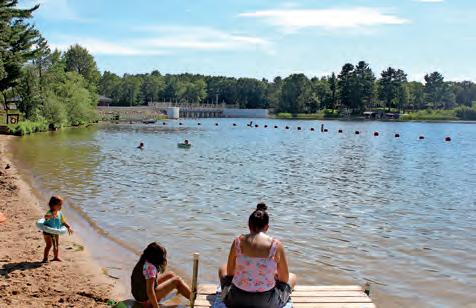
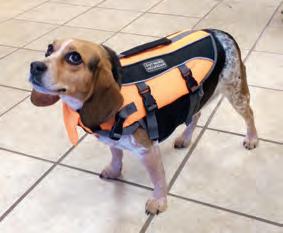
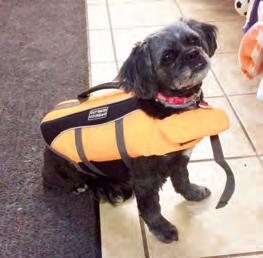

According to “A Taste of History,” a book published by the Crosslake Area Historical Society, a group of area businessmen began a group called the Crosslake Shopping Center Association.

Its first meeting was held Oct. 14, 1954, and Oscar Akre, Buck Roland, Albert Birkeland and Ray Hughes were elected officers.

The group obtained permission from the government to create a picnic area on the site. The businessmen donated five or six picnic tables and benches and added outside toilet facilities.
As more people used the picnic area, the Village of Crosslake applied for a lease of the land. It maintained the site from 1962-1965. In those three years, the park continued to grow in popularity. Visitors began to camp overnight at the picnic area, and maintenance problems began to arise.
In 1965, the village canceled the lease, and the federal government assumed control from the Gull Lake Reservoir headquarters. They constructed 20 campsites initially and continued to expand every year.
In 1970, a hot water comfort station and wastewater treatment system were added.
New campsites and restrooms have been constructed. Campers now reserve their sites online, rather than lining up outside the campground to claim firstcome, first-serve sites.
But the recreation area remains a place for families to gather and share old summer memories and create new ones for generations.
“The campground brings hundreds of thousands of visitors into the Crosslake
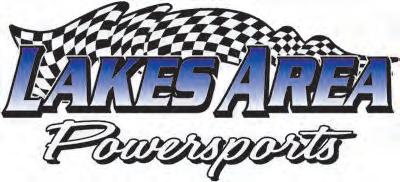

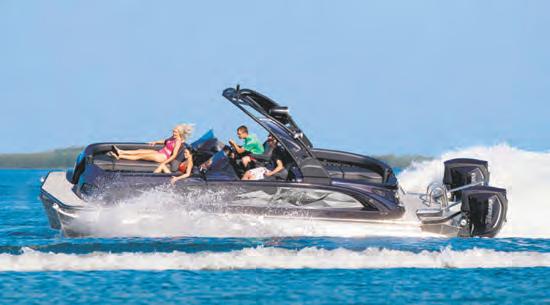
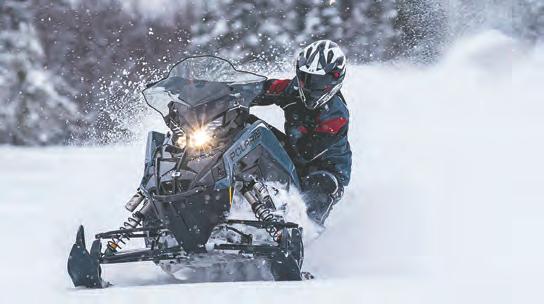
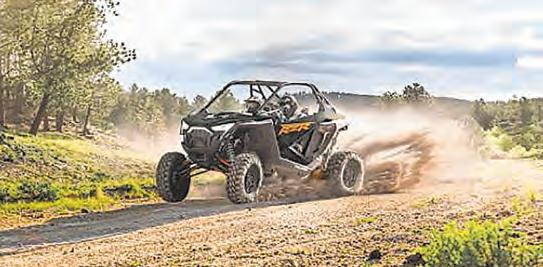
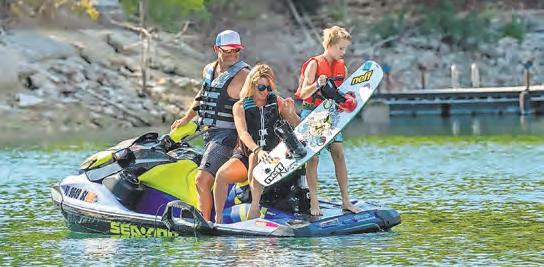
Before the online reservation system the campground uses now was created, guests would line up waiting to claim a first-come, first-serve campsite, like they did here in 1984.
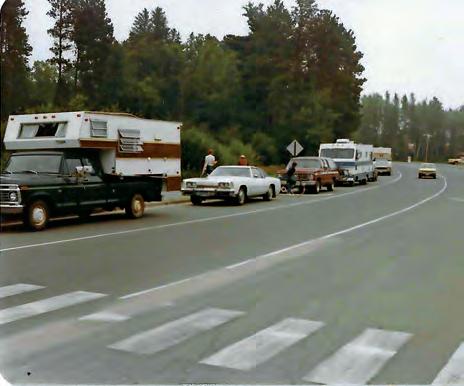
area each year,” the historical society’s book said. “The residents of Crosslake are proud, not only of the historic past of the Pine River Dam but also the majestic beauty that its park offers both residents and visitors alike.”
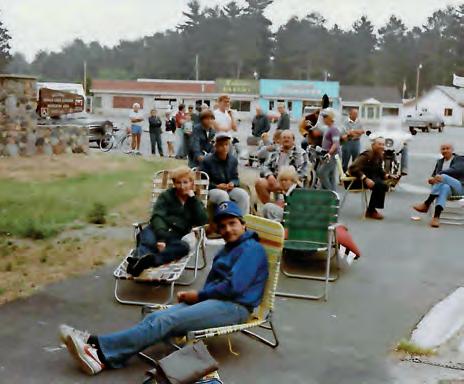
“The campground brings hundreds of thousands of visitors into the Crosslake area each year.”
- “A Taste of History”

In Minnesota there is hardly any other resource more zealously protected than lakes and wetlands. Few likely realize how big a role skilled artists have played in the effort to keep the state beautiful.
Several licenses offered through the Minnesota Department of Natural Resources include an optional “pictorial stamp” in addition to a license or plain text stamp. Those who opt for the pictorial
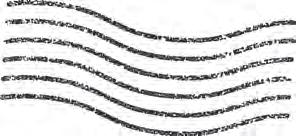
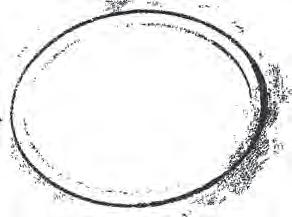
stamp eventually receive a stamp by mail on backing about the size of a dollar bill.
The work that goes into producing these stamps is immense and the competition is no joke.
Brady Switajewski was once a contender in the junior duck stamp contest while he was a student at Pine RiverBackus High School around 2000.

“I had to compete with Minnesota
competitors, but then if you win that, then it goes to nationals. But I just got an honorable mention,” Switajewski said.
He learned the hard way that the judges have very strict rules, and they take them seriously.
“(It’s) partially because I got deducted points. I guess I didn’t really read the rules and regulations well enough and I didn’t have my painting matted,” Switajewski said.
Pine River-Backus High School graduate Brady Switajewski won honorable mention in the state level judging in the junior duck stamp competition with this painting.He said it was disappointing to put so much time into the work and have it lose points for a technicality.
Switajewski was inspired by Pine RiverBackus art teacher Heidi Envall to submit.
“I drew my whole life and used to make fishing lures and enjoyed art,” Switajewski said. “I didn’t actually start painting until later in high school. I remember Heidi Envall and Wayne Shilson both tried nudging me in that direction quite a bit. I eventually listened and started screwing around with it and enjoyed it a lot more.”
The duck stamp program was ripe for Switajewski’s type of art.
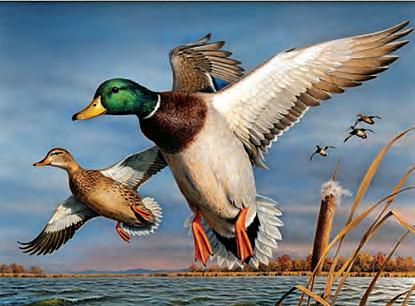
“Nature drives my creativity,” Switajewski said. “If I don’t have enough time in nature picking mushrooms, foraging or just sitting in the woods on a trail with my dog, I don’t have any creative energy. My brain simply doesn’t have the ability to visualize and be creative. I get that energy from nature.”
Switajewski occasionally still works on wildlife art, but he has not entered the contest again. He does frequently do research in the environment the stamps help to protect.
“I’ve planned on it and started paintings and this and that, but I haven’t entered any since then,” he said.
In a way, Switajewski’s research in wilderness is also part of the successful game plan of the Hautmans, Minnesota’s own royal family of the federal duck stamp program. Since James Hautman won the competition in 1990 with a painting of a black-bellied whistling duck, he and his brothers, Joseph and Robert, have won the contest 15 times.
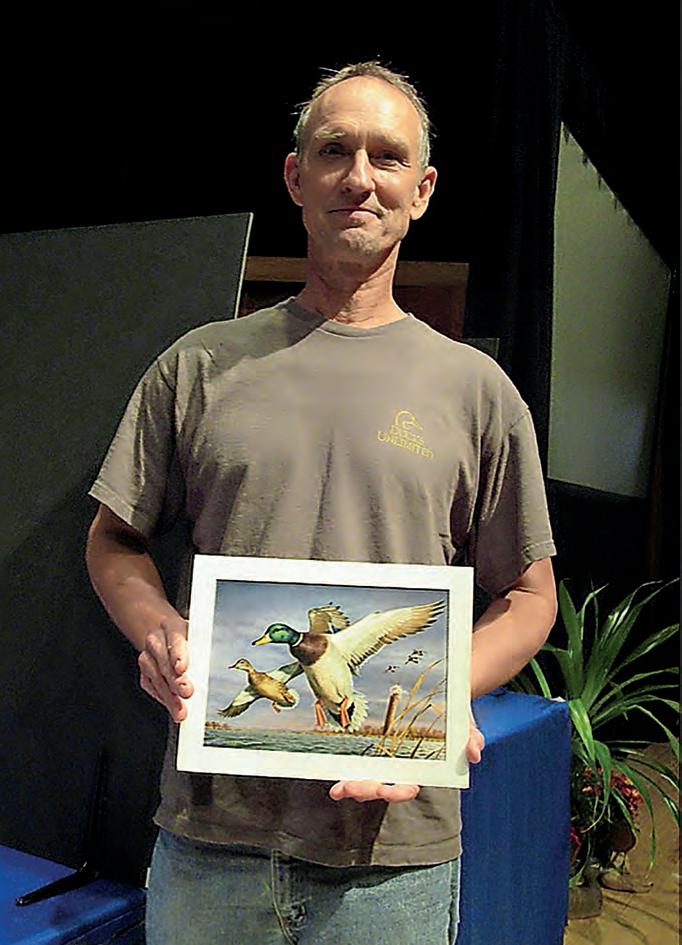
Joseph and James hold the record for federal stamps together for the most wins with six each.
Bob Hautman, of Delano, got started with the state stamp program when he won in 1988 with a painting of a bufflehead duck. Brother James followed in 1989 as the winner with the American wigeon.
The three brothers won six in the state competition - Bob in 1988, 1992 and 2001, James in 1989 and 1996 and Joseph in 2006.
“Mom was painting all these birds on driftwood,” Robert Hautman said. “People kept wanting to buy it, so we thought we’d start painting birds on driftwood. Then we heard about the duck stamp in 1985 and thought it would be fun. We started entering, then in 1988 I won in Minnesota. Winning
the federal just kind of evolved into our dream and it really worked out good.”
The Hautmans grew up in a home with seven children. Art was an easy pastime in such a large household, so all of the Hautmans grew up with some artistic talent or other, including their mother and father, though their father hardly had time to indulge.
Robert Hautman said he made money as a potter out of high school, but it proved a difficult job to make money.
Only a few years after winning their first state stamps, James won his first federal contest in 1990, and the Hautmans have been returning champions time and time again since then.
In the federal contest, Robert won the 2018, 2001 and 1997 races.
Surprisingly, winning the contest doesn’t pay anything directly. The contest is one of the few “for exposure” jobs that really do pay off.
“You get a sheet of stamps signed by the secretary of the interior,” Robert Hautman said. “And that’s it, but you have the copyright to make prints, and that’s where the artist can make money.”

Robert Hautman said the Minnesota stamp was one of the biggest launches for his career as an artist, and he and his brothers knew a win in the federal contest would be even more of a boon.
As for the family, since the beginning they
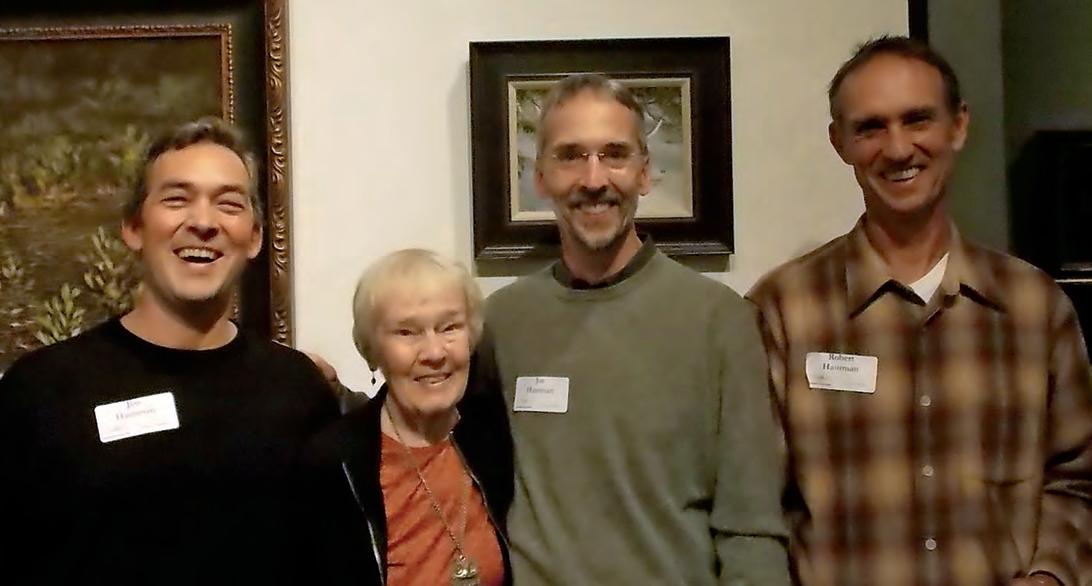 The Hautman family supports one another in their art and in the duck stamp program. Pictured are Jim, mother Elaine, Joe and Bob.
The Hautman family supports one another in their art and in the duck stamp program. Pictured are Jim, mother Elaine, Joe and Bob.
“You want to bring life to it and movement, even if it's sitting on the water, swimming or flying, you just want to bring life to it. ”
- Robert Hautman
looked at one brother winning as a win for the entire family, because it builds their name and their brand.
“We were just trying really hard to make a living at it,” Robert Hautman said. “It was really tough to make a living at painting. We were doing wildlife paintings. We collected all the stamps and looked at them and thought someday we could win a duck stamp. When we did, it was an absolute shock.”
The Hautman name was elevated onto the big screen when characters Marge and Norm Gunderson from the 1996 film “Fargo” are talking in bed about one of the Hautmans winning the 29 cent duck stamp competition.
Each stamp gets free “advertisement” by the government, and the Hautmans then use that advertisement to sell limited edition runs of the winning painting. Once the prints run out, that painting is gone, and there is demand for the winners of the duck stamp competitions.
Philatelists, stamp collectors, often go to licensing offices just to order pictorial stamps, whether they hunt or not. Combined with a print, they have something truly collectible.
Wildlife stamps have become a type of American pop culture with a dedicated population of collectors.
Over $1.1 billion in federal duck stamps have been sold since the start of the program in 1934 when President Franklin D. Roosevelt signed the Migratory Bird Hunting Stamp Act, according to the U.S. Fish and Wildlife Service. Approximately 1.5 million stamps ($40 million worth) are sold annually.
Robert Hautman said the biggest challenge in creating an entry is bringing the subject to life. The last thing you want is to make a duck simply look frozen in time.
“You want to bring life to it and movement, even if it’s sitting on the water, swimming or flying, you just want to bring life to it,” Robert Hautman said.
The Hautmans are avid hunters. Like Switajewski, they get their inspiration from watching their subject in action. Doing so helps them to avoid common mistakes, including making their subject’s movements look unnatural.
“Do your homework,” Robert Hautman said. “Find out what the species looks like. A lot of people don’t get it. You’ll
know it’s a mallard, but mallards don’t preen that way, they don’t look like that. People don’t put enough into just getting their drawing right first.”
The Hautmans have a tradition. They do a lot of sketches and color studies and then get together and compare notes to help one another choose which one looks like the best entry for the year.
Each painting can take as much as a year to complete, though one brother completed one in a week once. They often go to Washington, D.C., to watch the judging almost with the same gravitas and excitement as watching a basketball draft or scoring in the Olympics.
“It definitely puts you on the edge of your seat,” Robert Hautman said.
When one of the siblings takes home the win, the family gets together and celebrates. They used to do enormous parties, but the celebrations have since calmed down.
While the recognition and eventual pay day is the main motivation, Robert Hautman said it is a bonus knowing the stamps go to support wetland habitats.
“It feels really good,” he said. “All of us do a lot as far as donating art and different things for all kinds of wetland projects, and to be able to do a duck stamp makes it that much easier to have some recognition so our art goes for more when you donate paintings and prints. It really feels good because we’re all very concerned about the environment and loss of habitat and species.”
Federal funds raised through the sale of stamps help with the acquisition and protection of wetland habitat, as well as purchase of conservation easements for the National Wildlife Refuge System.
In the program’s first year, 635,001
stamps were sold and in two years 45 new national wildlife refuges were formed.
Today, more than 6.6 million acres of wetland habitat has been conserved.
The habitats protected by the program support entire ecosystems, native wildlife, endangered species, communities and local economies, with many protected areas open for public recreation.
The vast majority, 98%, of the funds raised must go directly toward conservation. Other funds for the same purposes are collected from duties collected on arms and ammunition and through sales of rights of way in some places.
The Junior Duck Stamp Conservation and Design Program works similarly to the standard program; however, it is only open to students in kindergarten through high school. Winners in this category show up on the junior duck stamp, which is $5 for students, educators, parents, conservationists and collectors.
There are 3,000 junior stamps sold annually. The funds from these stamps support environmental education activities for students. The junior program began in 1989.
The state stamp program is managed by the Minnesota Department of Natural Resources. The funds from these stamps are also used for habitat projects that benefit waterfowl, though funds from the state program are not traditionally used to purchase lands. They may help pay transaction costs.
The state program does fund wetland restoration projects, as well as water control structure development and maintenance, and maintenance of wild rice waters, important food sources to both humans and ducks alike.
Such funds are used annually in management of Crow Wing County rice lakes, including Hole-in-the-Day, Rice (Lowell WMA), Clark Lake, Round, Hay, Birchdale and more.
There are additional stamps for other species including trout, walleye and more. These programs similarly are used to benefit wildlife and outdoors enthusiasts.
TRAVIS GRIMLER, is a staff writer for the Pineandlakes Echo Journal weekly newspaper in Pequot Lakes/Pine River. He may be reached at 218-855-5853 or travis.grimler@pineandlakes.com
“We started entering, then in 1988 I won in Minnesota. Winning the federal just kind of evolved into our dream and it really worked out good. ”
- Robert Hautman
Location: Morrison County, near Cushing and Randall
Area: 2,708.78 acres

Deepest Point: 64 feet
Shore Length: 16.26 miles
Fish Species: Black bullhead, black crappie, bluegill, brown bullhead, green sunfish, hybrid sunfish, largemouth bass, muskellunge, northern pike, pumpkinseed, rock bass, smallmouth bass, sunfish, tiger muskellunge, tullibee (cisco), walleye, yellow bullhead, yellow perch, bowfin (dogfish), common carp, shorthead redhorse, white sucker, banded killifish, blackchin shiner, blacknose shiner, bluntnose minnow, brassy minnow, brook stickleback, central mudminnow, common shiner, fathead minnow, golden shiner, hornyhead chub, Iowa darter, Johnny darter, lake chub, least darter, minnows, mottled sculpin, northern redbelly dace, slimy sculpin, spotfin shiner, spottail shiner, tadpole madtom.
Invasive species: Eurasian watermilfoil, zebra mussel
Public Water Access: Three public water accesses: two state-owned accesses are on the east and west ends of the lake with parking available for a total of 45 rigs; a smaller township-owned access is available on the south side of the lake but has limited parking.
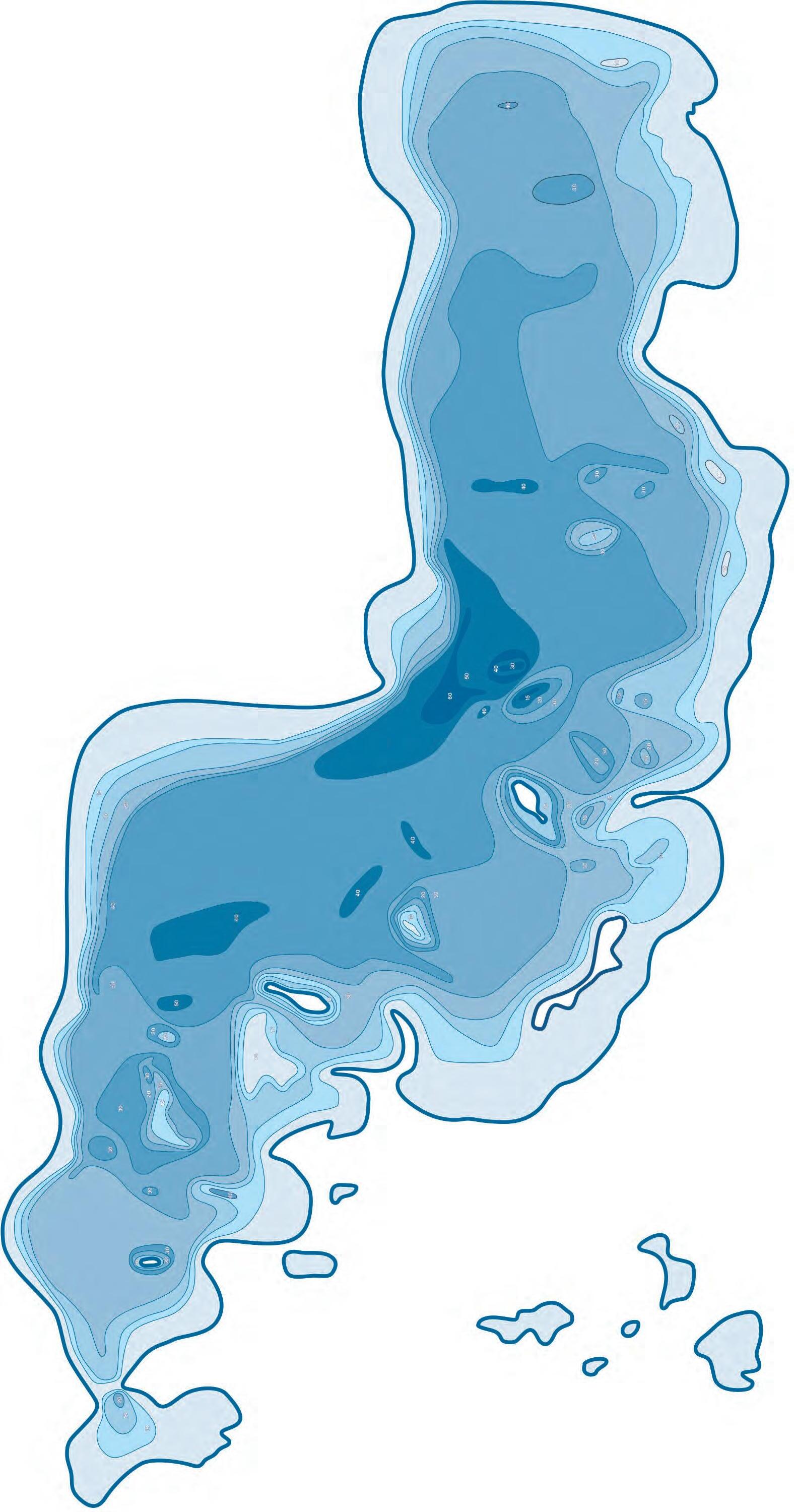
Interesting Fact: Lake Alexander was named for Thomas L. Alexander, an officer at Fort Ripley. It’s rated in the top 100 lakes in Minnesota for walleyes, according to the Lincoln Area Business Association.
Sources include Minnesota Department of
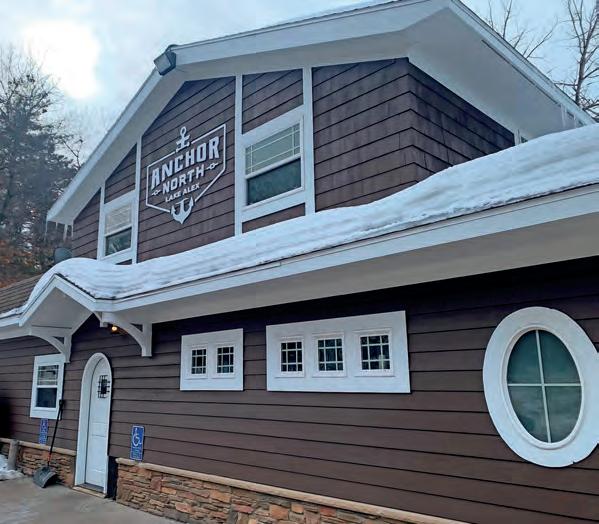
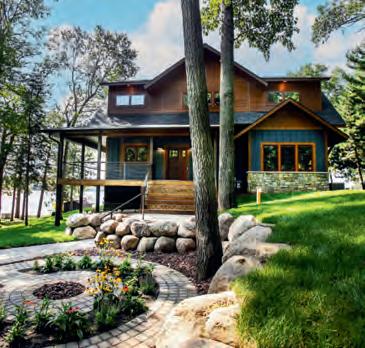
Call it love at first sight.
The first time that Devin Leger visited the old Castaway bar/restaurant on the north side of Lake Alexander was on a real estate visit.
The visit was followed by a purchase offer and then a sale of the business to Leger.
“The first time I was here was when I came to look at it,” Leger said of his purchase of Castaway in November of 2022. “I had worked at Ernie’s (restaurant/bar on Gull Lake) for 10 years, and this place reminded me of a smaller version of Ernie’s. It’s located right on the shoreline. This (facility) is a dinosaur. You won’t get a building this close to water again.”
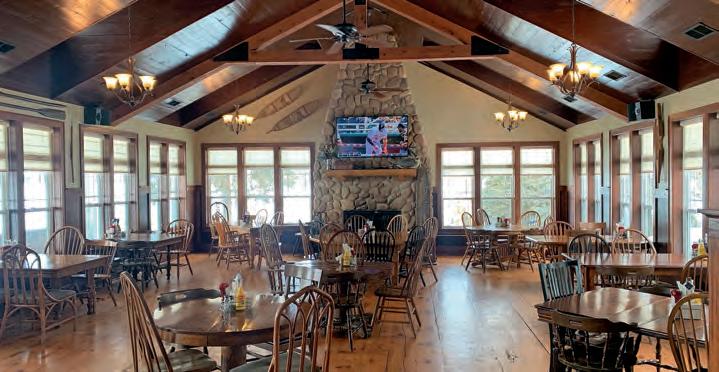
One of the first things Leger did was rename the business to Anchor North.
“It used to be called Anchor Inn, but that name felt like a supper club,” he said. “Anchor North made sense since it’s located on the north side of Lake Alexander.”
After a month of inside and outside remodeling and cleaning, Anchor North opened Dec. 12, 2022.
“We were busy when we opened,” he said. “With any restaurant, being new gives you a bump in business.”
But Leger knows that the summer months will be the peak in business with locals and visitors.
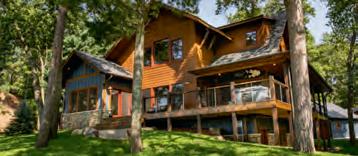
“Speed is important - how fast you get the food out to customers,” said Leger, who served as bar manager for five years at Ernie’s. “Not everyone likes to go to the lake and wait three hours for your food. The key is to be able to pump the food out, and have it taste the same each time.”
To help with efficiency, Leger made a few adjustments in the operation.
“How things flow out of the kitchen is the key to a successful operation when dealing with high volume,” he said. “We have a new chef and a new kitchen layout. The chef will run the kitchen and I will run the front of the restaurant. We also have a full new menu. We didn’t just change one menu item.”
Anchor North, which is located north of Cushing, is now open daily with breakfast served on Saturdays and Sundays.
One other popular restaurant along Lake Alexander’s 16 miles of shoreline is The




Landing, which is located on the east side of the lake.
Jeff and Melissa Garlie purchased The Landing, formerly the Shady Inn, in November of 1999. The Landing is located across the street from one of the lake’s three
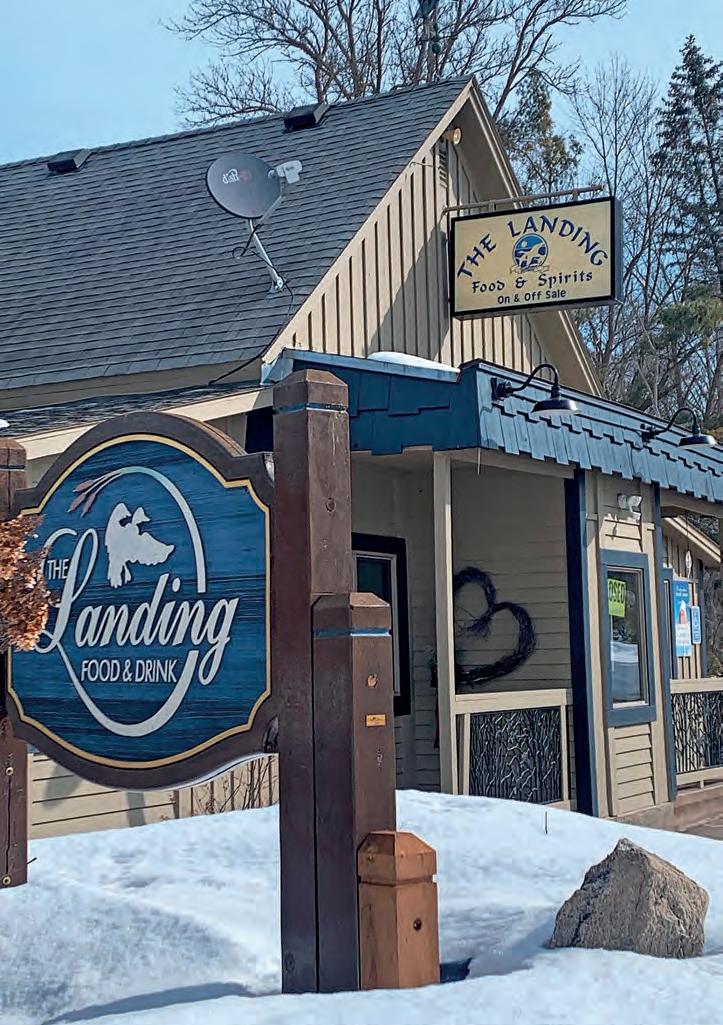
public accesses.
Lake Alexander is one of the most popular lakes in Morrison County. Besides being a scenic, clear-water lake, it supports a diverse fish community that offers a variety of angling opportunities. Alexander has abundant
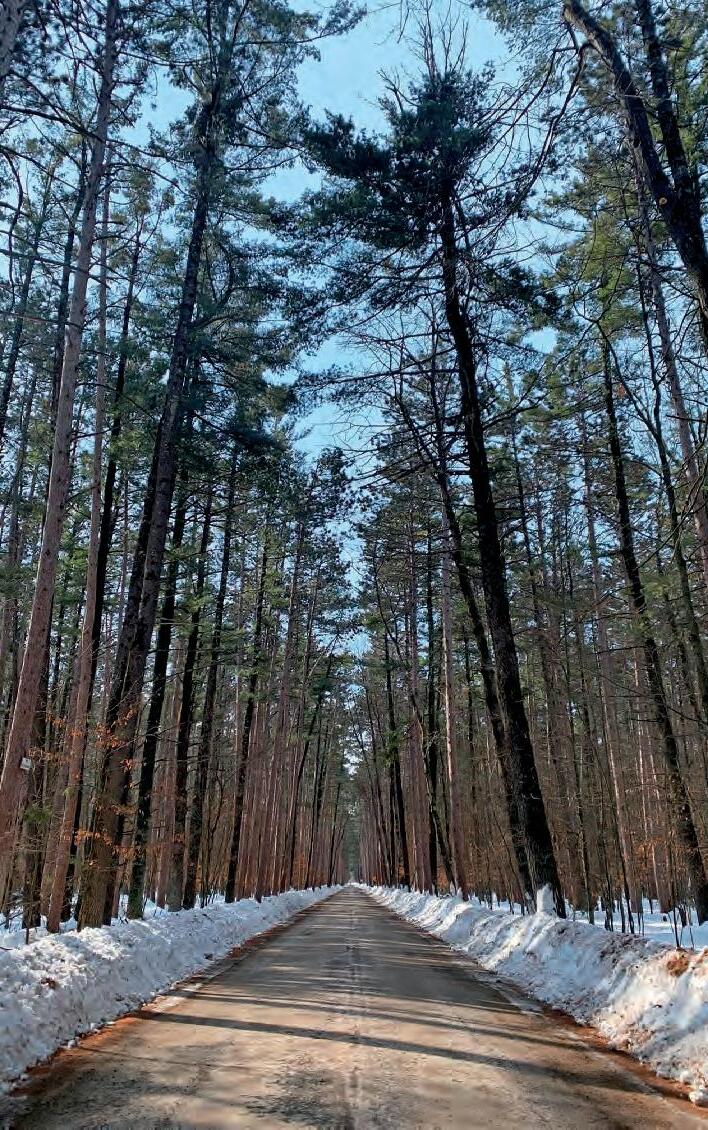
offshore structures and a reputation of better walleye angling success at night or on overcast days.
Sand was the most common shallow water substrate found during a survey.
The lake supports diverse vegetation beds that provide important fish habitat as well as shoreline protection from erosion. Some of the more common submergent plant species were clasping-leaf pondweed, coontail and flat-stemmed pondweed.
The fish management focus for the lake is primarily walleye with secondary management for northern pike, muskellunge, largemouth bass and smallmouth bass.
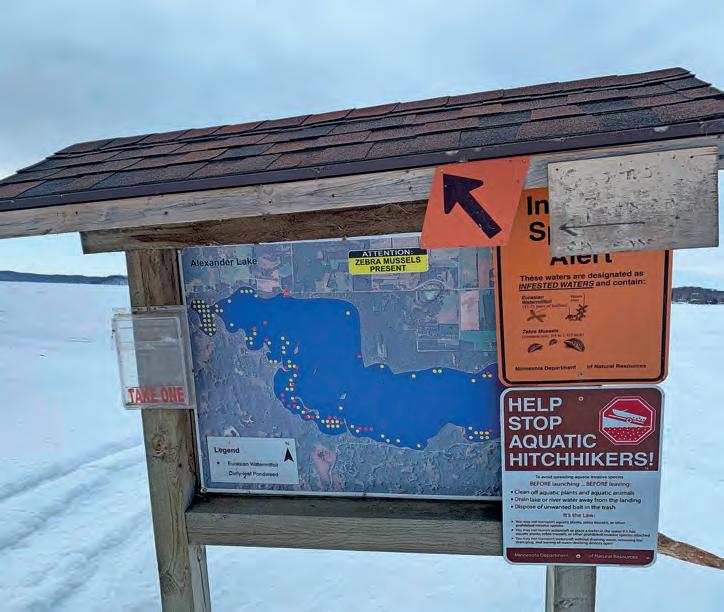
Lake Alexander provides the potential for anglers to catch trophy size fish of several different species.
PETE MOHS, is publisher of the Pineandlakes Echo Journal weekly newspaper in Pequot Lakes/Pine River and the Brainerd Dispatch daily newspaper. He may be reached at 218-855-5855 or pete. mohs@brainerddispatch.com.
 A public access sign shows the layout of Lake Alexander. Pete Mohs / Echo Journal and Brainerd Dispatch
A public access sign shows the layout of Lake Alexander. Pete Mohs / Echo Journal and Brainerd Dispatch
John and Jane Witmer’s hill down to Upper Gull Lake features native vegetation.
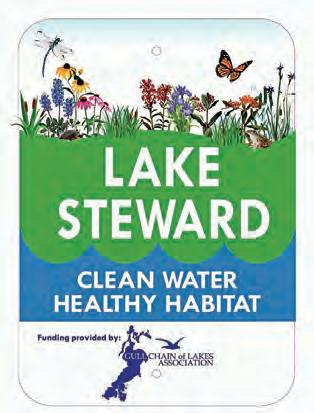
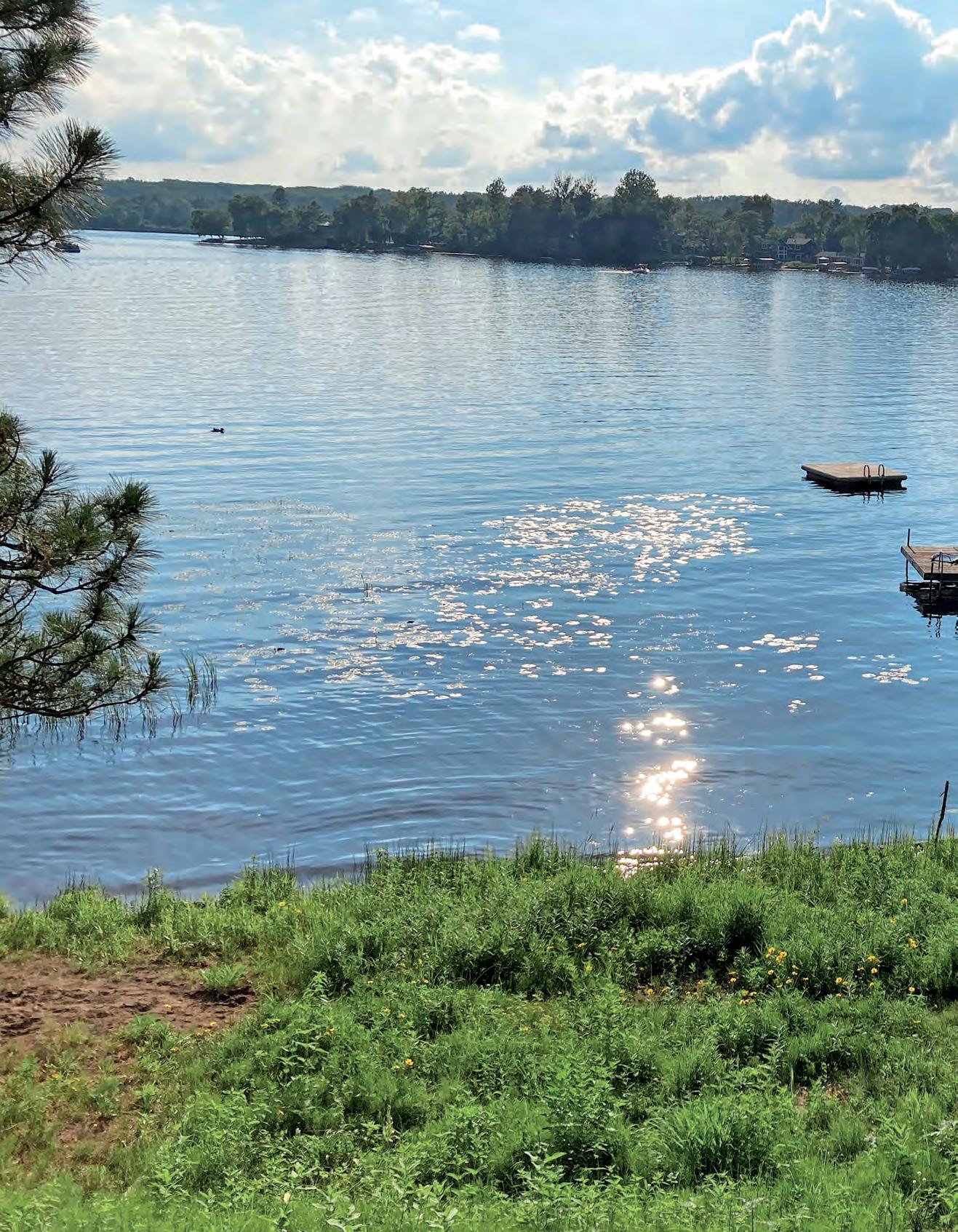
When Dorothy Whitmer and her husband, Randy Johnson, bought a lot and built a home on Gull Lake in 1990, their land was partly cleared with a scruffy lawn.
“And I thought, ‘Oh, I’m going to have the greatest lawn ever,’” Whitmer said.
They kept trees and put in sod, which Whitmer later learned was harmful to habitat, especially with the fertilizers and pesticides required to maintain it.
Talking about her lawn now leaves Whitmer horrified because she now knows she was harming the lake.
Her change of heart regarding pristine landscaping came in 2016 by way of Michigan. Her family has owned a cottage on Lake Michigan since 1895, and she received a quiz to rate lakeshore from a watershed council there.
“I thought, ‘Well, I’ve got the greatest lakeshore ever,’” Whitmer said of her East Gull Lake home. “So I jumped on this quiz. And I failed it — failed miserably. I had fertilizers and pesticides and I’m mowing my lawn. I was absolutely horrified.”
Seven years later, Whitmer is chair of the Gull Chain of Lakes Association’s Lake Steward Committee, whose mission is to improve water quality and habitat.
Committee members visit property owners’ homes and share tips on how to convert to a natural shoreline and the benefits of doing so. People who take steps toward natural landscaping receive a Lake Steward award sign for the end of their dock.
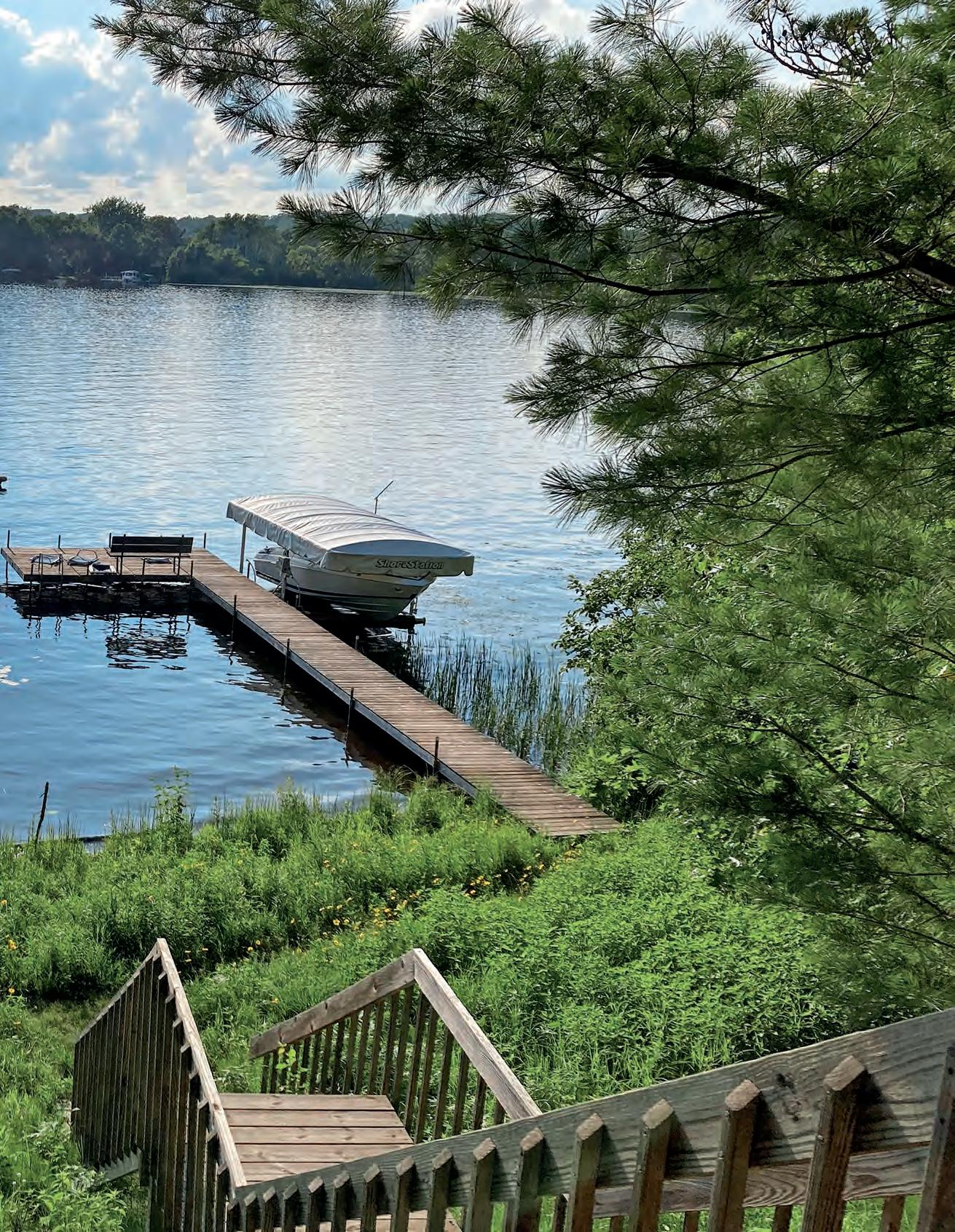
Since the Lake Steward program’s inception in spring 2019, 84 properties have earned the award and the committee has visited 150 properties on the 10-mile long lake.
Property owners do not have to be GCOLA members to participate.
Whitmer and her husband moved from the Twin Cities to their Gull Lake home full time in 2016. They tried to grow their lawn for a couple of years while she did her own research on natural lakeshore landscaping.
“Finally I decided to do something and so I pitched this idea to the (GCOLA) board of directors,” Whitmer said.
The board liked her idea to educate Gull Lake property owners about healthy landscaping. With help from Sheila Johnston and Kris Driessen, a plan evolved.
“I thought the quiz was something that was really earth-shattering, that would change the culture,” Whitmer said. “You can’t say to someone, ‘I’m going to educate you.’ No one wants to be educated according to what someone else wants. … So the quiz is the only way you’re going to get people to question what they do and look for a better way.”

On Memorial Day weekend in 2019, they sent a four-question quiz to 700 email addresses, hoping to get just 10 responses.
It was a rainy weekend, and they were ecstatic to receive 100 responses by that Monday.
The next step was to visit respondents’ properties and share ways to cultivate a more natural lakeshore. They visited 28 properties that first summer and awarded 23 Lake Stewards.
In the last three years, they’ve done about 40 site visits each summer.
“I think what’s so cool about it now is that 23% of our membership is taking the quiz and telling us who they are,” Whitmer said, meaning those homeowners are willing to have people visit their property and to learn more.
To earn the Lake Steward award — and, most importantly, to protect the lake water quality and habitat — homeowners have stopped such practices as mowing to the lake’s edge, using pesticides and fertilizers, and removing dead trees that fall into the water.
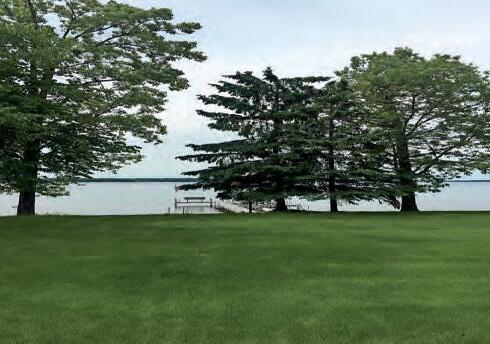
They let trees grow on their lakeshore and plant native plants.
Whitmer likes to share stories of Lake Stewards who are enjoying life on the lake while protecting it at the same time.
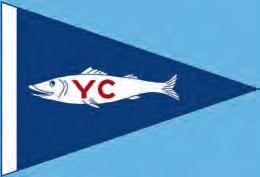
It took her two years to earn her Lake Steward award in 2020.
“That’s what’s so funny about this story is I’m setting up this program for Lake Stewards and I’m a failure,” Whitmer said with a laugh. “I had to work at it. I had not stopped fertilizer and pesticides in 2019 — no, no, no. So I did it. And it was so hard. But now I know how to make it easy for others.”
Whitmer and her husband then decided to go one step beyond Lake Steward to bring back an even more natural shoreline. They hired a native landscape contractor to till the dense sod and plant native plants, seeds and plugs, as well as native trees and shrubs on the lake side, with cost-share funding from Cass County and GCOLA’s Shoreland Habitat program.
They liked it so much that two years later they self-funded a similar project on the road side of their property.
Whitmer then took over GCOLA’s Shoreland Habitat program and created a streamlined, online process to get projects done and funded more quickly.
“My yard is so beautiful, it has changed my life,” Whitmer said. “The native flowers, like wild bergamot and fireweed, are brilliantly colorful and full of butterflies, dragonflies and pollinators. We have so many birds nesting, like nut hatches and goldfinches and swallows, because there are insects to feed to their baby birds. It’s thrilling.”
This photo was taken after Dorothy Whitmer's and Randy Johnson's restoration project was completed in 2019. A straw “erosion control blanket” was put down with seeding, and then three birch tree clumps, a few shrubs and “plugs” (the tiny plants evenly planted in the blanket) were all planted in the blanket.
Contributed / Dorothy Whitmer
Last year, Whitmer and her crew went door to door handing out flyers that encouraged people to take the online lakeshore quiz.
It worked, as summer 2022 saw the number of quiz responses double.
This year, Whitmer is targeting Upper Gull Lake, where she hopes to get a flyer to every home.
“I call it Upper Gull 360,” she said. “It’s a jewel of a lake with only 400 acres, but because it is smaller, you can see around the lake to your neighbors, and it’s easier to understand that you have a shared destiny,
that you are all in this together. So can we get all 260 owners on Upper Gull to spend three minutes to make a big difference and change the future for their lake?”
While participating in a Minnesota Lakes and River webinar, Whitmer answered a question — who is responsible for water quality in lakes? She said the property owners share responsibility for the water, which is a common resource for everyone.
“We’re sitting right there on our properties,” Whitmer said. “I felt it was partly beholden to us to do what we can for the lakes.”
The webinar leader, Jeff Forester, contacted her and they collaborated to roll out Minnesota Lakes and Rivers Lake Steward for any lake association in the state. There are currently 35 active programs.
Gull Lake is No. 95 of the top 3,000 lakes in the state ranked by two criteria: value of the lakeshore properties, and vulnerability to phosphorus pollution, according to the Minnesota Pollution Control Agency.
Lakes are vulnerable because of what lakeshore owners do to their properties, and that needs to change through education and action.
“We are going to do things on our own properties that we have control of and we’re going to save this lake for future generations,” Whitmer said, noting the need to change the culture of what she was — believing that perfectly manicured green lawns are good.
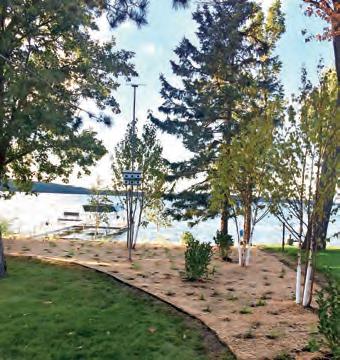
Potential Lake Stewards on Gull Lake
should go online to gcola.com and click on the “Lake Steward Program” to learn more. It’s basically a matter of:


1. Taking the online quiz of four questions to rate your lakeshore. This should only take 3 minutes.
2. Allowing the Lake Steward Committee members to walk around your property for 15-20 minutes.
Then you’ll either receive the Lake Steward award or the committee will help you qualify by offering ideas on how to improve your property to promote lake quality and habitat.
“‘Clean’ monoculture lawns, mowing and trimming mean that there are no native plants to absorb nutrient and silt runoff from the land, and literally tons of algae, impairment of loon habitat and the promotion of invasive species are the result,” GCOLA’s Lake Steward portion of the website says.
“Letting native plants grow in the water, along the shoreline as a buffer zone to absorb nutrient pollution from runoff, and in the upland zone away from the lake saves money and effort while it protects our lakes and wildlife habitat,” it says.
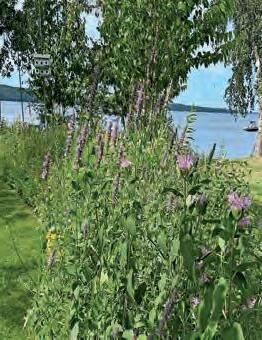
“When awardees display the colorful Lake Steward sign, others can admire and aspire to having beautiful natural shoreland that leads us to a brighter future for our lakes.”
NANCY VOGT, is editor of the Pineandlakes Echo Journal weekly newspaper in Pequot Lakes/Pine River. She may be reached at 218-855-5877 or nancy.vogt@pineandlakes.com.
Contributed / Dorothy Whitmer
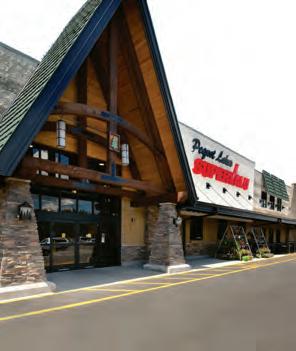
Tom and Jeanne Lefevere
Jeanne Lefevere’s family has a 50-year history of Gull Lake property ownership and they’ve always maintained a natural growth zone of native plants along the lakeshore to protect lake water quality from fertilizer runoff and for the habitat that native plants provide.
Also, a significant percentage of the property has been intentionally left as natural forest.
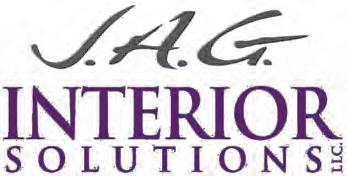
A Lake Steward team visited the Lefeveres’ property and encouraged them to discontinue the use of herbicides, insecticides and nitrogen-containing lawn fertilizers, along with maintaining the natural growth of native plants along the shoreline.
“We love the idea of the Lake Steward program,” Jeanne Lefevere said. “It provides simple guidelines for lakeshore management that can have a significant impact on the health of our Gull Area Chain of Lakes ecosystem. It provides a way for people who are concerned about the preservation of our precious natural world to ‘think globally, but act locally.’”
John and Jane Witmer
John and Jane Witmer removed invasive plants from the Upper Gull Lake property they’ve owned since 1984 to earn the Lake Steward award.
Jane said they started planting native plants long ago, and through the Lake Steward program they learned about invasive plants.
“We wanted our hillside to return to native vegetation,” John said, noting they first tried to fill the hill down to the lake and shoreline with wildflowers, and now native plants are taking over.
In the 1980s, someone installed rip rap, which Jane said they learned isn’t good for shorelines.
They’ve learned easy tips through the Lake Steward program, including that ash from bonfires is bad for lake water. Now after having a bonfire, they simply remove the ashes.
“It’s not like we can’t have bonfires. We just clean up afterward,” she said.
John said: “About half of our shoreline is natural and undisturbed woodland. With that you get turtles and frogs and ducks and loons. I just think that’s really neat.”
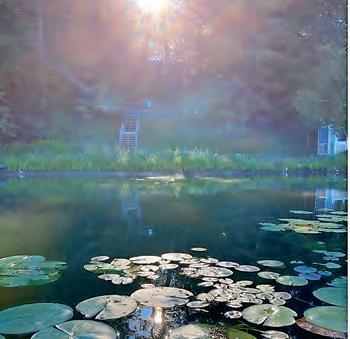
Phil and Karen Saari
Phil and Karen Saari did a shoreline restoration project on their Lake Margaret property that included “bioengineering” with coir logs to hold their lakeshore without using rocks or boulders.
They earned the Lake Steward Award by working for over a year to remove invasive plants and planting native plants.
Phil said when they bought the undeveloped property in the mid-1980s it was fully grown in
with tall plantings on the shoreline.
“Everyone’s dream is to have a nice sandy beach,” he said, so they cut the vegetation back and began mowing what was to be grass up to the shoreline.

Over the years, their beach began eroding, which led to the shoreline restoration project.
They’ve now let the natural vegetation grow back and no longer mow to the water’s edge.
“We’ve spread the word, talked to other neighbors,” Phil Saari said.
Their advice to others is to let natural plants grow, add plants that are good for the environment, leave dead trees in the water as they create natural habitat for fish, and don’t mow to the water’s edge.
“It looks beautiful but it’s not healthy for the lake,” Phil Saari said, echoing others’ thoughts. “Leave it as natural as you can.”
These Lake Stewards encourage other lakeshore property owners to take the quiz on the GCOLA website, have a site visit and take the simple steps that will have a significant positive impact on lake water quality.
As a destination for anglers and tourists, the Brainerd lakes area relies on the ice to leave area lakes in a timely fashion every spring.
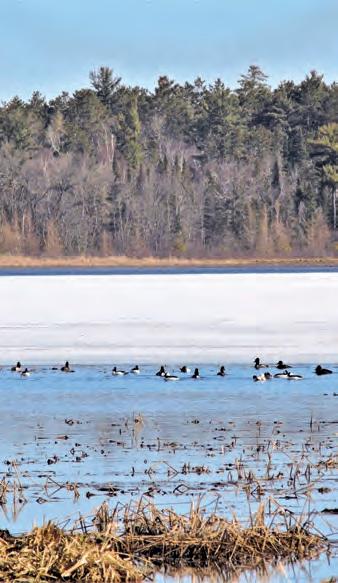
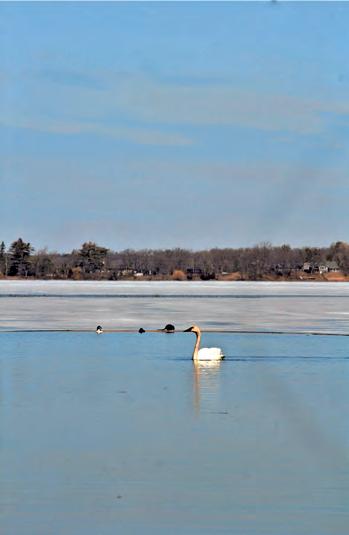
However, ice-out is becoming harder and harder to predict for experts and officials.
“When I was a kid growing up in northern Minnesota, ice always left the lakes by May 1, plus or minus a week,” University of MinnesotaDuluth professor and limnologist John Downing said. “You could pretty much count on it, but now it spans seven weeks. It can go out as early as late March or as late as the 18th of May … That is a huge deal when you consider that your standard open water season is 12 weeks.”
Downing is a professor of biology
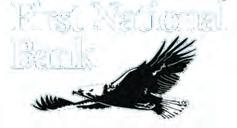
and an expert in limnology – the study of lakes and freshwater ecosystems – and strives to educate others on the factors that lead to when ice comes and goes on area lakes. He is the director of the University of Minnesota’s Sea Grant program, which has developed what he calls an “ice-out widget” that people can use to get an estimate of when ice-out will occur in their area.
In the Brainerd lakes area, Downing said the average ice-out date is now around April 24, but that date can vary dramatically.
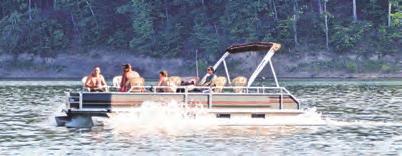
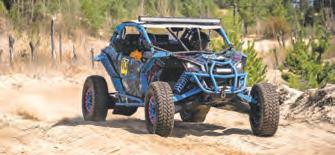
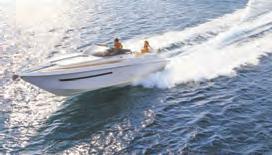
“‘Climate weirdness’ is what I call it,” Downing said. “It is getting harder to predict. That is why we are working on this is to try and give some guidance to people and help them understand

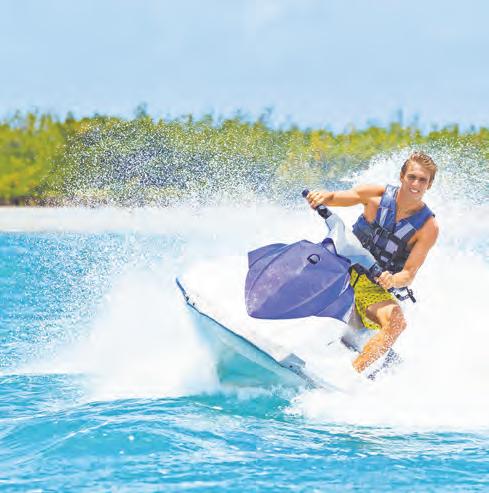
when they can get to the cabin and put their dock in, or put their boat in the water.”
Though varying ice-out dates are occurring statewide and beyond, resort communities like those in the Brainerd lakes area may feel that inconsistency more than most.
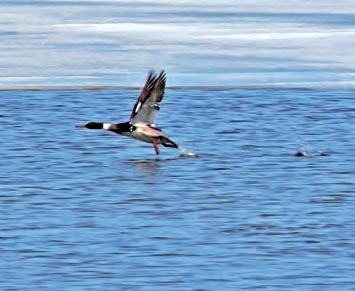
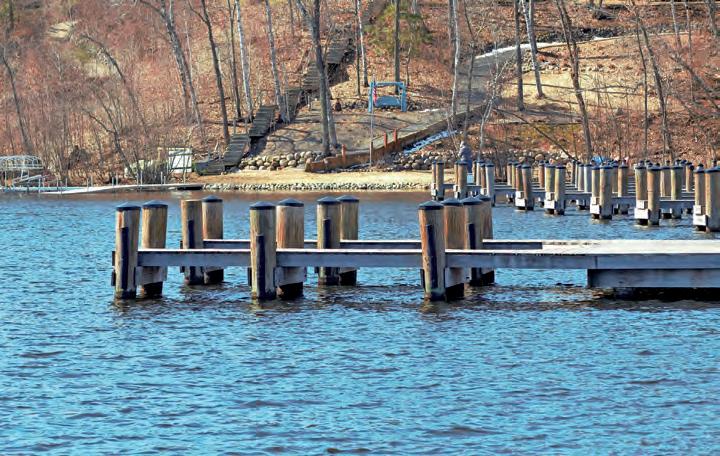

“It seems like we are bouncing between two extremes a lot more frequently,” said Derek Bahr, research scientist and acting supervisor of the Minnesota Department of Natural Resources Fisheries Office
in Brainerd.
“One year, for example, we might have one of the more extreme later ice-off dates on record, and then the next year the opposite might occur, so there are certainly some concerns from how things progress in the spring and how organisms have adapted – whether it is the phytoplankton and zooplankton or all the way up the food chain – when you get these 50-day swings from one year to the next,” Bahr said.
Both Downing and Bahr referred to “thaw degree days,” which is a scientific measurement determining the net amount of potential ice melting. It looks at the average daily temperatures of a given late winter or early spring day to see how much – if any –melting can occur.
Though a spring day can see melting during the day with an above-freezing temperature, lows below freezing can negate the amount of melting that occurs.
“Take a daily high and low (temperatures) and take the difference between those two,” Bahr said. “If that value is above freezing temperature, that counts toward your thaw degree days.”
Ducks, loons and swans all benefit from the long "runways" created when the ice recedes from the shore, such as this scene from Round Lake near Nisswa. Grimler / Echo Journal“‘Climate weirdness’ is what I call it. It is getting harder to predict. That is why we are working on this is to try and give some guidance to people and help them understand when they can get to the cabin and put their dock in, or put their boat in the water.”
- John DowningSome popular fishing spots were ice free ahead of others, such as the bay in front of Bar Harbor in Lake Shore.
The Sea Grant suggests it takes roughly 220 thaw degree days before the ice is gone on a given lake.
“Time and temperature matter,” Downing said.
“Meteorologists sum together thaw degree days – it is basically the average daily temperature and how much above freezing that is … We did not really have any net thawing until early April. That is very late.”
Time and temperature are not the only factors of ice-out, however. The depth of a given lake can have a significant effect on when ice will finally disappear.
“Real shallow lakes are cold top to bottom, whereas the deeper lakes sit at about 39 degrees at the bottom yearround,” Downing said. “When the ice comes off the lake, water mixes top to bottom and brings all the heat up, and that is why ice-out is actually really fast.”
Bahr mentioned Upper Red Lake as an example, as the lake is very large, but surprisingly shallow.
“Ice tends to form on that lake much more quickly in the winter than maybe a much smaller but much deeper lake,” Bahr said. “With some of the mine lakes in the Cuyuna Rec Area, oftentimes by the trout opener you might be lucky to have six or seven inches on some of those, just because they are so deep and there is not a lot of mixing that occurs.”
Perhaps not surprisingly, officials are also seeing dramatic changes to ice-in dates as well.
“The average seems to get later, and the ice is thinner,” Downing said. “I’m concerned about people’s safety. We will be able to project when the lakes are ice-covered, but not when they are safe. I see people out there with their pickup trucks on ice I would never go on.
“The tricky thing is when you put a vehicle
on ice, you are asking that ice to bend enough to basically make a great big boat to float your pickup. That is a lot of bending. You need a lot of thickness to do that, and you need good solid ice, and the ice hasn’t been as solid recently,” he said.
Additionally, of course, snowfall and snow coverage play a major role both on ice-in and ice-out.
“There are a lot of cases this year where smaller, shallower lakes froze sooner, and then we got a big dumping of snow,” Bahr said. “That ice might not have had as much
time to develop because the snow was insulating it, whereas some of the lakes where ice didn’t form until after some of the bigger snowfalls might have gotten a further head start, even though ice formed later.”
Downing said once snow is removed from the lakes, the darker ice will absorb more heat on sunny days, leading to faster melting. Other factors like water clarity and the shape of a lake can play a role in how fast the ice melts.
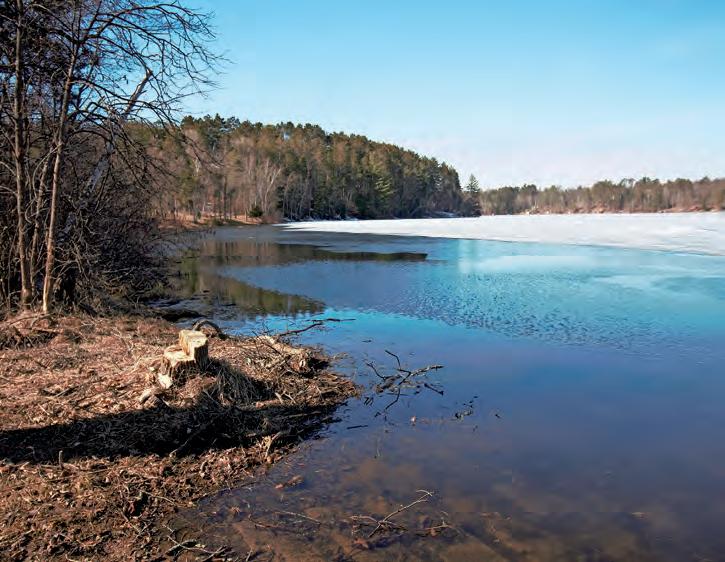
Downing said, however, that the nowunpredictable nature of ice-out and ice-in is not only surprising, it may also be the new normal moving forward.
“This is a real change in our climate patterns,” Downing said. “I do think the variation is here to stay, and actually the creep toward early ice-out has been shown right across North America … The variation is really surprising, because it is all over the place. That’s really why we’re trying to help people by giving the best forecast we can.”
DAN DETERMAN, is a staff writer for the Pineandlakes Echo Journal weekly newspaper in Pequot Lakes/Pine River. He may be reached at 218-855-5879 or dan.determan@pineandlakes.com.

Area: 7,714.19 acres.
Shore Length: 32.2 miles miles.
Deepest Point: 138 feet.
Water Quality: Suitable for swimming and wading, with good clarity and low algae levels throughout the open water season.

Public Access to Whitefish: 3 miles North and East of Jenkins on Co Rd 15, then 0.75 mile East on Jenkins Twp Rd. Facilities: 1 concrete ramp, 25 vehicle/trailer parking spaces, 1 dock, 1 toilet. (Other sites on the individual lakes)
Invasive Species: Zebra mussels
Fish to catch: Black bullhead, black crappie, bluegill, brown bullhead, burbot, green sunfish, hybrid sunfish, lake whitefish, largemouth bass, northern pike, northern sunfish, pumpkinseed, rock bass, smallmouth bass, tullibee (cisco), walleye, yellow bullhead, yellow perch, bowfin (dogfish), greater redhorse, redhorse, shorthead redhorse, silver redhorse, smallmouth buffalo, white sucker.
Source: Lake-Link; Minnesota Department of Natural Resources LakeFinder
Lake Map Sponsored By:
MN Inboard Water Sports
15779 Edgewood Drive Baxter, MN 56401 218-822-4401
mninboard.com

You may be a new boater on the Whitefish Chain of Lakes. Maybe you are a seasoned boater-cabin owner.
The question may have been raised: “What organization is responsible for the buoys on the chain?”
The Whitefish Chain Yacht Club (WCYC) has been responsible for this safety and save-your-prop feature as well as boating and water safety classes for youth.
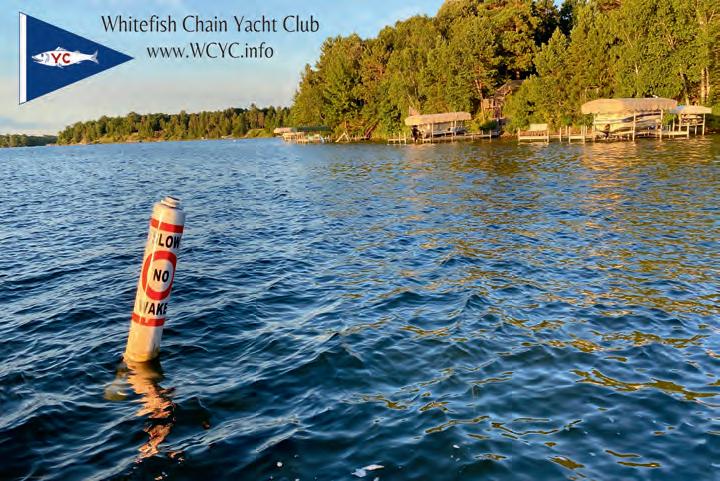
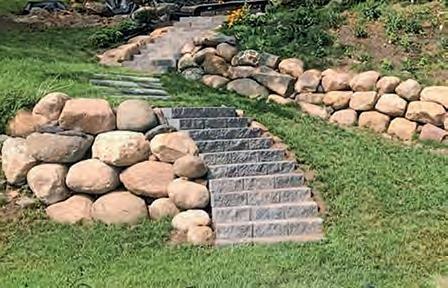
In the past five years the youth classes have been offered at no cost to anyone who registers for these classes on the WCYC. info website.
In that five-year span, 215 youths have received their Youth Boat Operators Permits and a free personal flotation device.
The Women at the Helm classes, held at Bertha Boatworks, have enabled 89 women to gain more confidence and skill at docking and navigating boats.
Most important are the swimming and water safety classes held at the U.S. Army Corps of Engineers Campground where 430 swimmers are all just a bit more knowledgeable about swimming and
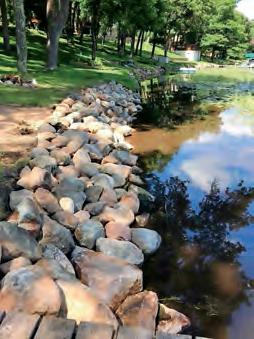
water safety.
A dedicated group of board members and volunteers make all these boating and water safety initiatives happen.
Member support through annual dues of
$50 and generous donations enable this organization to continue its mission of “safety on the water.”
For more information or to give a donation, go to wcyc.info.
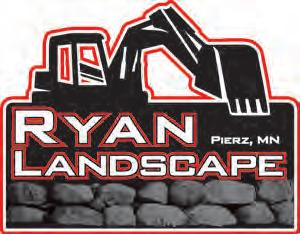
“Spoiled” is an accusation we sometimes level at the young, an accusation suggesting that one has received too much, too easily, and may take for granted the good things they have.
It could be argued that Minnesota anglers and recreational boaters are spoiled, too. We’re surrounded by roughly 14,000 lakes, far more than the 10,000 claimed by our license plate legend.
Nowhere within our borders are we ever very far from a scenic and fishable stretch of the state’s 92,000 miles of rivers and
streams. To the many nonresidents who envy what Minnesotans have, our state is the nearest thing to an aquatic paradise.
It’s not just the abundance of lakes and aquatic byways. Not just the high quality of angling and boating these waters provide.
One of the less celebrated pluses that contributes mightily to making Minnesota a premier angling and boating destination is the excellence of our public access to this richness of waters.
This, too, is something we may too easily take for granted.
“Minnesota has roughly 1,650 public water accesses,” said Dave Schotzko, of the Minnesota Department of Natural Resources Parks and Trails Division. “The majority are managed by the DNR, and the rest are mostly overseen by the counties and the U.S. Forest Service.”
Schotzko is responsible for oversight of 258 of these accesses within a seven-county
area of northern and north central Minnesota. The remaining 1,400 or so DNRmanaged accesses are administered by 15 Parks and Trails Division managers covering the rest of the state.
Though he is officially based in Bemidji, Schotzko’s territory includes the regional recreational hubs of Brainerd, Walker, Detroit Lakes and Park Rapids, too. Prior to the past 15 years in Bemidji, Schotzko spent 10 years in Tower working for Parks and Trails in the state’s northeastern Arrowhead region.
“Our public water accesses range from simple ‘carry-down’ sites without launch ramps — generally on smaller lakes, used mainly by smaller watercraft — to those on the largest, most popular lakes, accesses that might have floating docks, multiple concrete ramps, handicap-accessible toilets and large, paved parking areas,” he said.
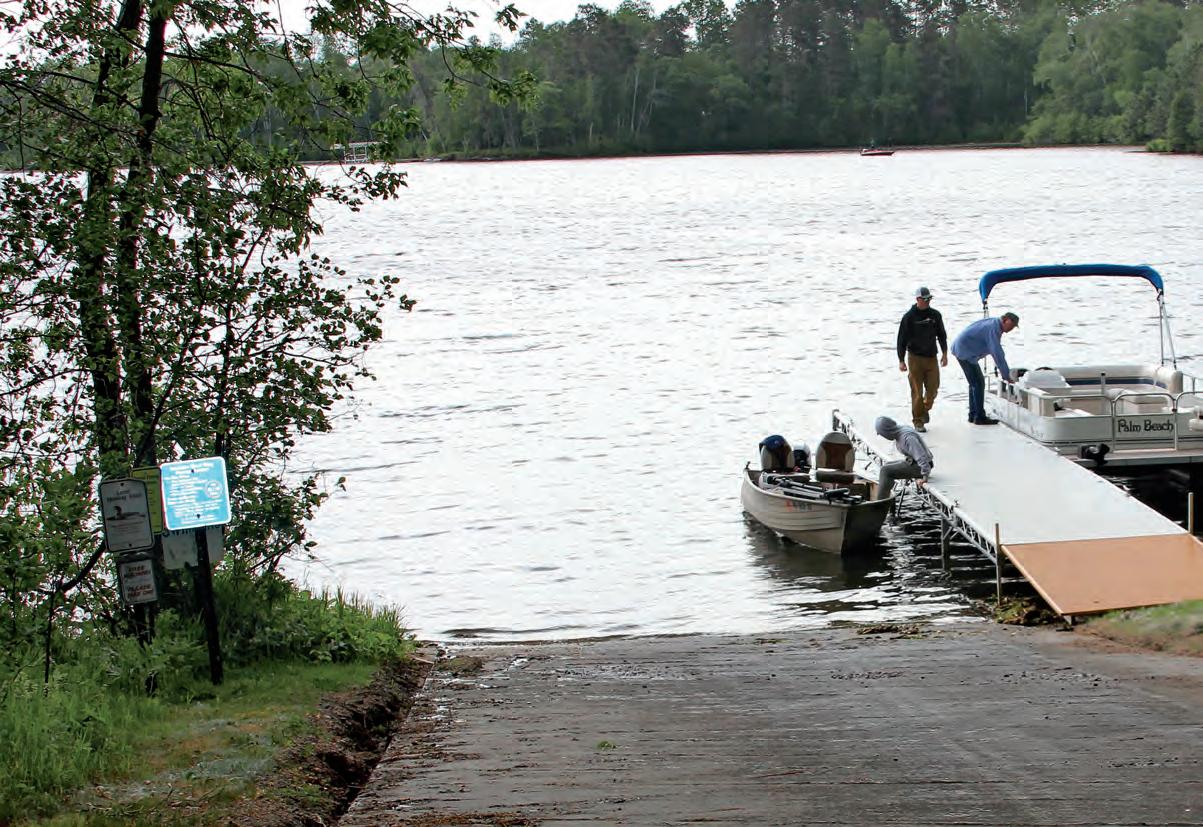
Angler and boater expectations may
be chiefly focused on their on-the-water experiences. But there are logistics expectations too, like getting on and off the water easily, safely and expeditiously.
Meeting those expectations can mean periodic maintenance throughout the open water season, Schotzko said.
“We may have to visit some of the public accesses four or five times a season,” he said.
The reasons vary.
“On some lakes we can find ourselves chasing fluctuating water levels, having to adjust the height of docks as water levels rise with rains, or lower docks if water levels drop under dry or drought conditions,” Schotzko said.
Other maintenance needs include resurfacing gravel parking areas, trash cleanup and repairing “blow holes” off the end of concrete launch ramps.
“The majority of our public water access roads and parking areas are gravel surfaced,” Schotzko said, “and they develop
potholes with use and with runoff from rains.”
That’s a reality that requires grading to repair them.
“Anglers and boaters with big, expensive boat and trailer rigs are sensitive about damage, so it’s something we have to keep on top of,” he said.
Perhaps the biggest repair headache is the damage known as a “blow hole,” which can occur off the end of a launch ramp.
“It typically happens when a large boat with a large motor uses a surge of power to run the boat up onto its trailer,” Schotzko said. “That prop surge can blow out sand, gravel and surprisingly large rocks from the bottom just off the end of the ramp, and deposit them 30 feet or more beyond the ramp.”
Eventually this can create a drop-off at the end of the ramp, or the concrete ramp planks themselves can be undermined, sink and lead to boat trailers hung up on their axles.
The submerged hump built up from the displaced sand, gravel and rock beyond the
end of the ramp can itself be a hazard to boats as they launch or land, and typically requires excavation to repair.
A backhoe with sufficient reach to remove or reposition the displaced lake bottom material is needed, and may require the services — and cost — of a contractor whose equipment exceeds the capabilities of the DNR’s.
Sometimes access damage is intentional, as when a driver spins his vehicle’s wheels and turns in a tight circle — “doing doughnuts” — to throw sand and gravel.
“We’ve recorded this on surveillance cameras,” Schotzko said, “and have sometimes been able to ID a license plate number.”
In at least one instance, this allowed him to show a parent how their child spent some of his time behind the wheel, and led to him spending time with a rake in hand, restoring the gravel surface!
Other maintenance needs during the open water season include litter pickup, toilet pumping — performed by a contract service — as well as occasionally replacing signage that has been defaced or destroyed.
“There are a few access sites where the entrance signs are likely to be gone just about every time we check them,” Schotzko said.
Having well-maintained public accesses statewide is especially appreciated by anglers and boaters who spend time on a number of different lakes or rivers. One of the conditions for the DNR’s Division of Fisheries to stock walleyes, muskies, northern pike and any other game fish is that there must be public access to those waters.
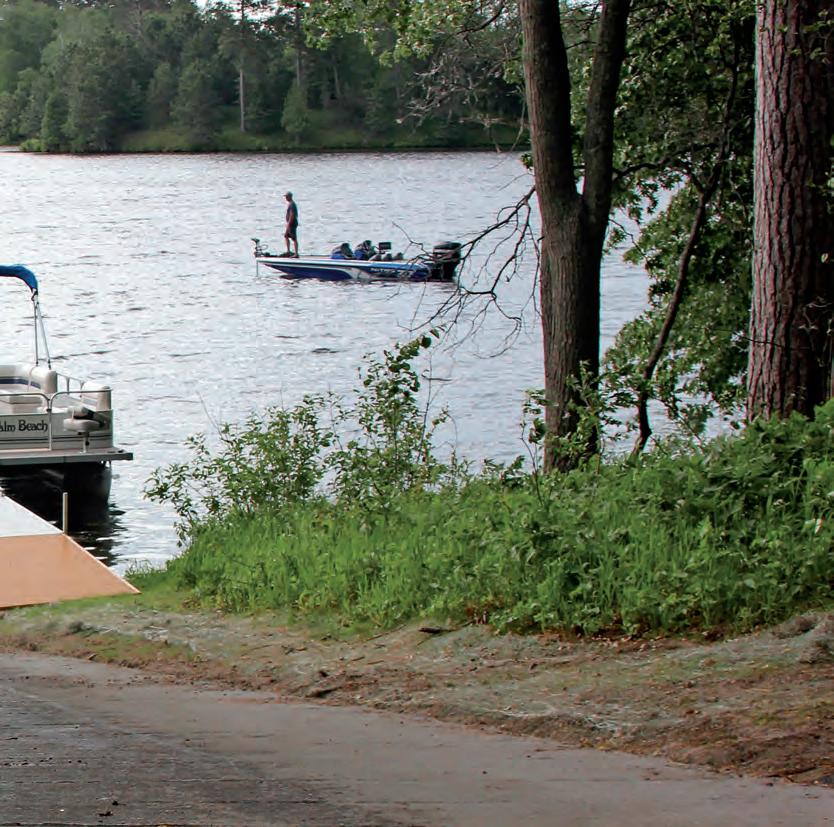
Not everyone is equally enthusiastic about Minnesota’s commitment to public water access. Some waterfront property owners anticipate and fear increased boat traffic on “their” lake, more vehicular traffic on roads leading to access points, as well as real or imagined crime, partying and other bad behaviors at an access point.
Schotzko feels he has been fortunate in not encountering much heated opposition when acquiring new or enhancing existing public accesses during his 25 years of carrying out these responsibilities.
The DNR tries to be proactive in communicating with local stakeholders, including nearby property owners, lake association members and other nearby residents.
“Our public water accesses range from simple ‘carry-down’ sites without launch ramps — generally on smaller lakes, used mainly by smaller watercraft — to those on the largest, most popular lakes, accesses that might have floating docks, multiple concrete ramps, handicapaccessible toilets and large, paved parking areas.”
- Dave Schotzko, DNR
“We try to involve the lake associations in particular, whether it’s a new access site or work on an existing one, to gather their opinions and suggestions,” he said.
The DNR is also careful to do its legal homework before initiating a project.
“We’ve had instances where a group might claim that a road easement to a site the DNR was purchasing and developing as a public access was a ‘private’ road, which could derail a project. But in the end, we could show a recorded easement to allow public use and access to the site,” Schotzko said.
Building or maintaining a public water access sometimes leads to surprises. Unexpected discoveries — Schotzko calls them “show stoppers” — can complicate things.
Access work could reveal a threatened plant species or discarded hazardous waste, Schotzko said. There is even the potential for archaeological complications, such as the discovery of a fire pit, abandoned encampment or other evidence of a site’s use by presettlement native cultures or early explorers.
Lakes and waterways are logical locations, given their importance in transportation, fishing, hunting and wild rice gathering.
Any of these discoveries could mean a need to collaborate with another agency, such as the State Historic Preservation Office, National Park Service or another group, such as a tribal nation.
Evidence of archaeological importance is typically not widely publicized, in order to avoid the site being disturbed.
Just as there are trends in watercraft development, there are trends in the management of public water accesses.
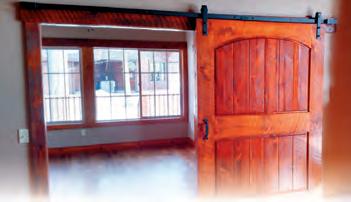
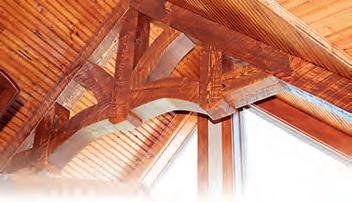
“In the past we had a huge focus on acquiring land for new boat landings and were moving at warp speed doing so during my time in Tower, Minnesota,” Schotzko said. “One notable change since then is our current focus on managing and maintaining the boat landings that we already have.
“My time now is mostly spent dealing with trespass issues, access area fences, ramp repairs, weed control, unauthorized garbage
dumping and an assortment of tasks that easily eat up each day,” he said.
Another current priority is “working with our land department and with our surveyors to resolve encroachments at public water accesses, which in the past did not get our full attention,” he said.
“It would be ideal to eventually have the pendulum swing back the other way again, and to acquire key pieces of property adjacent to some existing access sites, ones that are far too small for today’s larger watercraft,” Schotzko said.
When a public water access is developed or improved, particularly if it’s expected to receive high-volume use, a great deal of planning goes into the design or redesign.
Beyond an initial survey, items to be considered include access surface — gravel or pavement — traffic flow, the most efficient launch ramp placement, parking area size and positioning, and perhaps fencing to screen the site from adjacent properties.
If there is an active lake association, the site’s conceptual design will commonly be taken to the group for input.
Funding for maintaining Minnesota’s public water accesses can come from several sources, including watercraft registration fees, special-use permit fees, gas tax and potentially from the state’s general fund as an appropriation by the governor and state Legislature.
The general public is often unaware of what happens behind the scenes. As with so many things, this applies to the administration and maintenance of public water accesses.
This author’s longtime friend, James — an avid angler who has launched at many public water accesses across Minnesota — is of the opinion that “the issues that most often affect an access user are likely to be people issues, and less often are about the access itself.”
He cites traffic congestion at peak use times and boater inexperience in launching their watercraft as common factors that lead to backups and frustration.
“People using an access just need to be patient and understanding,” he said.
The unseen, behind-the-scenes planning and work that go into maintaining and improving public water access are vitally important. Yet it just seems to be human nature to notice things when they seem amiss, or imperfect, and take the good for granted.
To that extent, perhaps we anglers and boaters are, indeed, spoiled!
MIKE RAHN, writes Inside the Outdoors, an outdoor column published in area publications and on their websites, including the Pineandlakes Echo Journal and its website, www.pineandlakes.com.
“We try to involve the lake associations in particular, whether it’s a new access site or work on an existing one, to gather their opinions and suggestions”
- Dave Schotzko, DNRRough Sawn
A long-planned trail around Gull Lake to connect four communities — East Gull Lake, Fairview Township, Lake Shore and Nisswa — continues to edge closer to completion.
The paved, multi-use trail will total 21 miles, traveling around the south, west and north ends of Gull Lake.
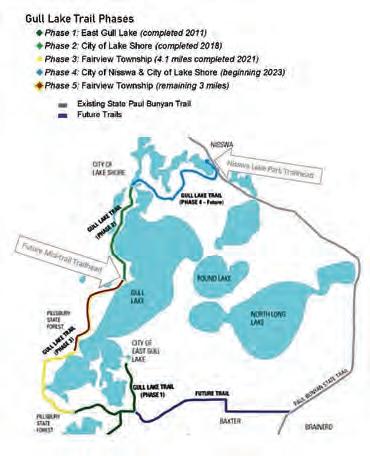 By community
By community






East Gull Lake: This city’s trail system has been in place since 2011.
Fairview Township: The township has the longest trail portion at 7.8 miles. An initial 4.1 miles were completed in 2021.
In summer 2023, the township will complete another 3.1 miles of trail, leaving just over a half mile to complete. The trail will extend from Sandy Point Road to a half mile south of Sunshine’s Summerhouse. There will be a .6-mile gap in the middle.
Lake Shore: This city has 2.276 miles of trail that is adjacent to, but detached from, County State Aid Highway 77, and 1.77 miles of widened shoulder along CSAH 77.
The trickiest 1.3 miles — from Bar Harbor Supper Club, over the Gull Lake Narrows, past Zorbaz on Gull to the Whitney Gravel Pit entrance — was being done in spring 2023.
The remaining portion to connect to Nisswa will be complete when funding is secured.
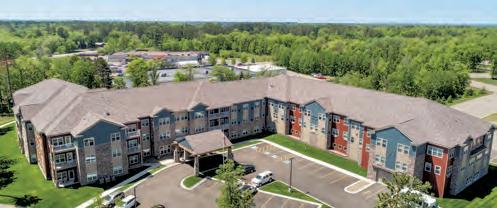
Nisswa: The 3.1 miles of Nisswa’s part of the trail will continue from the Lake Shore/Nisswa city line on CSAH 77 north following Lower Roy Lake Road and connecting to Hazelwood Drive and to Nisswa Lake Park and the tunnel that goes under Highway 371 to downtown Nisswa and the Paul Bunyan Trail.
Spring 2023 work includes completing the trail on Lower Roy Lake Road and Hazelwood Drive.
The city will need to complete the remaining section on CSAH 77 to link the trail to Lake Shore’s portion.
Photos sponsored by
www.shannonsautobody.com
(218) 829-6764
View more photos at: https://www.pineandlakes.com/ community/love-of-the-lakesmagazine-photo-galleries

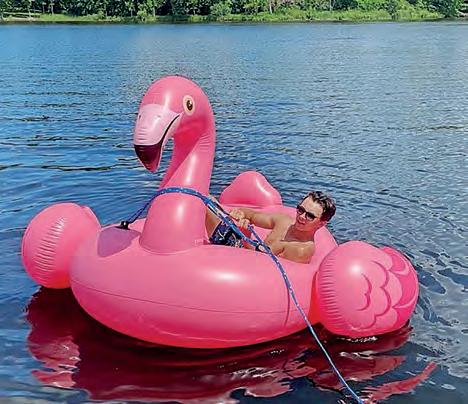
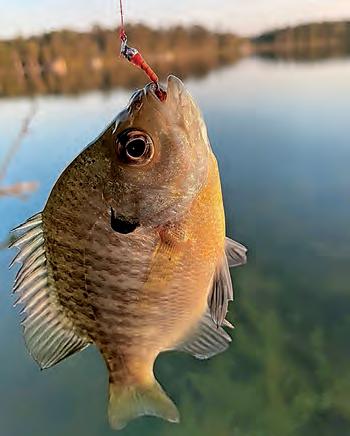

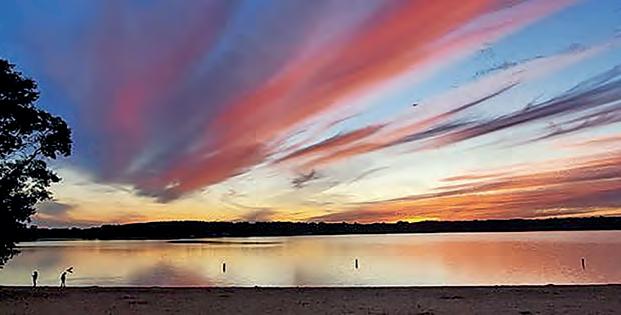 Two kids walk the shoreline of Whipple Beach in Baxter at sunset. Darcie French Granddaughter, Ava, loves preparing for this special family summer tradition! Brad Winn
Two kids walk the shoreline of Whipple Beach in Baxter at sunset. Darcie French Granddaughter, Ava, loves preparing for this special family summer tradition! Brad Winn
I never see the sun rise on the lake because I have to be at work so early! This day I was staining the steps and watched the sunrise!
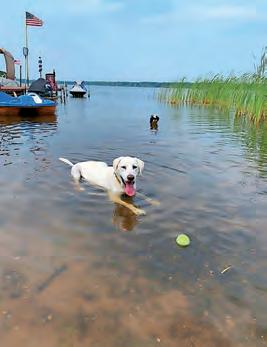
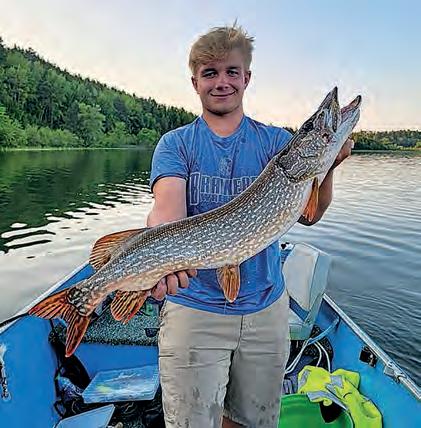
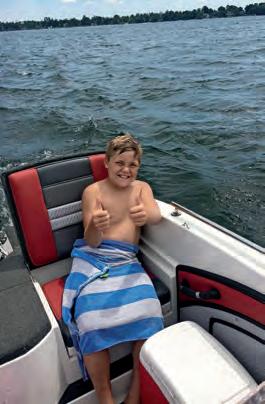
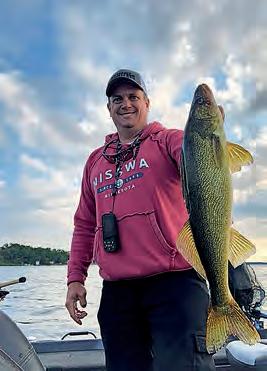
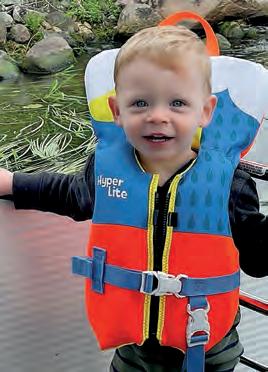
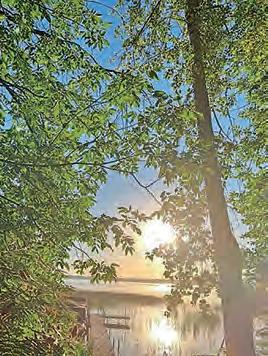
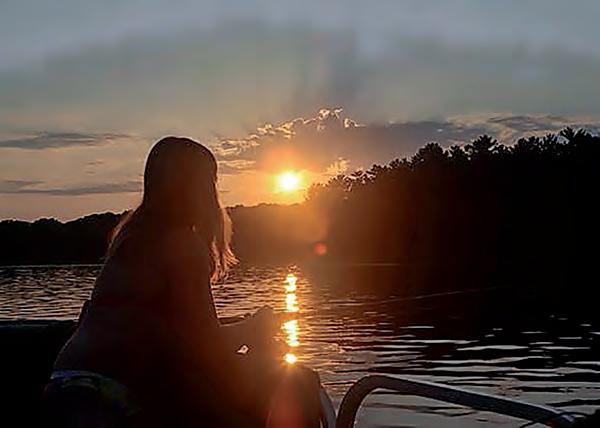
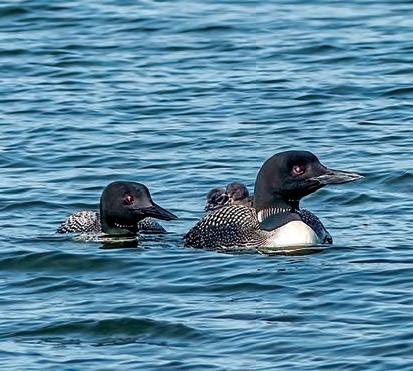 Sunset cruise and fishingsummer's gifts.
Julie Fritz
Suzette Olson
Loon family swimming around Little Lake Hubert. Rod Baakkonen
18 month old Wilson loves boat rides!
Cathy Reither
Walleye fishing at Gull Lake. Chris Philen
Time for a break after tubing behind the boat down the Crow Wing River.
Susie Alters
My son doing what he loves. Lettie Williams
Jake cooling off in the lake. His favorite place to be.
Sunset cruise and fishingsummer's gifts.
Julie Fritz
Suzette Olson
Loon family swimming around Little Lake Hubert. Rod Baakkonen
18 month old Wilson loves boat rides!
Cathy Reither
Walleye fishing at Gull Lake. Chris Philen
Time for a break after tubing behind the boat down the Crow Wing River.
Susie Alters
My son doing what he loves. Lettie Williams
Jake cooling off in the lake. His favorite place to be.
▶ U.S. Army Corps of Engineers
Gull Lake Recreation Area
10867 East Gull Lake Drive
Brainerd, MN 56401
Located on Government Point at the Gull River outlet on Gull Lake, the Gull Lake Recreation Area offers:
• Swimming beach
• Restrooms
• Changing rooms
• Picnic tables
• Playground
• Boat launch
• Fish cleaning area
• Fishing dock
• RV camping
• Campground with shower houses, fishing area, canoe access, a dump station, a playground and picnic shelters
▶ U.S. Army Corps of Engineers

Cross Lake Recreation Area 35507 County Road 66 Crosslake, MN 56442
Located off County Road 66 in Crosslake, the Cross Lake Recreation Area offers:
• Swimming beach with a playground and picnic tables
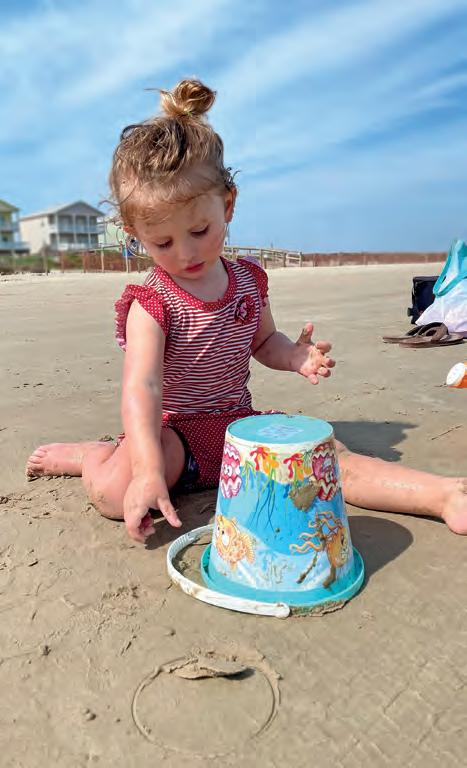
• Boat launch
• Over 100 campsites
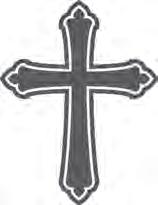
• Several fishing docks
• Picnic shelters
• Restrooms
• Fish cleaning
• Dump station
▶ Pelican Lake Beach 27203 Pelican Lake Road Merrifield, MN 56465
Located off County Road 118 on Pelican Lake Road, Pelican Beach offers:
• Sandy, shallow swimming beach
• Restrooms
• Changing rooms
• Picnic tables
▶ Whipple Beach Recreational Area 14441 Oakwood Drive Baxter, MN 56425
Located off Oakwood Drive in Baxter, Whipple Beach offers:
• Sandy swimming beach
• Restrooms
• Vending machines
• Shower
• Changing rooms
• Picnic tables
• Playground near the beach
• Boat launch
• Fishing docks
• Trails
▶ Pillager Lake-Swimming Beach
Located off Pillager Lake Drive Southwest, this Pillager location offers:
• Swimming beach
• Picnic tables
• Fishing
• Boat landing
▶ Serpent Lake-Swimming Beach
Located in Crosby, this location offers:
• Swimming beach
• Restrooms
• Changing rooms
• Picnic tables
• Playground
• Boat launch
• Fishing docks
• RV campground
• Skate park
▶ Kater Park - Pine River
Located in Pine River, this location offers:

• Swimming beach
• Picnic tables
• Boat landing
• Fishing docks
• Food nearby
▶ Lum Park on Rice Lake - Brainerd
Located off Highway 210 at Lum Park in east Brainerd, this location offers:
• Swimming beach
• Restrooms
• Changing rooms
• Picnic tables
• Event pavilions
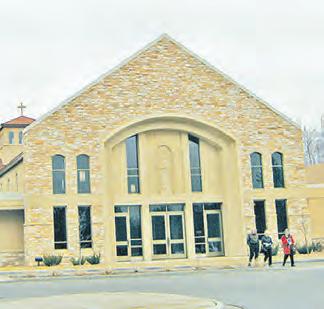
• Playground
• Boat launch
• Fishing dock
• Camping
• Disc golf

The largest lakes in North America were excavated over time by the focused, fast flow of streaming ice. The Great Lakes each had an ice stream that deepened weaker areas of bedrock over the last 2.5 million years.
It is hard to say what was there before but it was likely some kind of depression. It is clear that Lake Superior is located over a major tectonic feature — a rift, that once contained an ocean. The glaciers exploited what was most likely
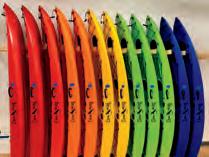
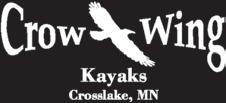
still a low point in the landscape and removed sedimentary rocks as well as harder rocks on the North Shore. However these lakes and others in Canada are also located at the contact between the Canadian Shield, hard, crystalline rocks like granite, gneiss and greenstone and the overlapping sedimentary rocks like limestone, sandstone and shale: Lake Winnipeg, Great Slave and Great Bear lakes, for example.
“Irregular topography created by dirty, melting glaciers is especially easy to imagine this time of year as large piles of snow melt in the corners of parking lots. The irregular piles of debris left behind are much smaller but similar in origin to the landscapes created behind the moraine as dirty, stagnant ice melted…This is the origin of the lake and wetland-dotted landscape in and around the area from Hackensack to the west side of Backus through the Foot Hills State Forest and south along the hilly forested moraine to Pillager.”
- Carrie JenningsThe change in the bed of the ice sheet likely resulted in the focusing of ice flow into the fast-moving ice streams. It was the ice lobes that emanated from the ice streams that mostly impacted Minnesota.
Note that the Boundary Waters
Canoe Area Wilderness is located on the Canadian Shield and its lakes are low spots on the bedrock surface where water pools. The shapes of lakes reflect
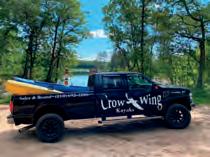
Tunnel Valleys: Dashed parallel lines demarcate subglacial tunnels now indicated by chains of lakes and long lakes. Flow was to the southwest. Hachures point in toward the tunnel. These were briefly occupied by large, erosive flows of water and subsequently partly infilled with glacial debris. They fed major outwash fans at the ice margin to the southwest.
Contributed / Carrie Jennings
Wadena Drumlin field overlapped by Ice Stagnation Moraine of the Superior lobe. The streamlined subglacial landscape of the Wadena lobe (left half of the image) is older than and was overridden by ice of the Superior lobe, which advanced from the northeast to this position and stagnated in its outer portion. A thin ridge indicates the moraine of the active ice and the hilly, irregular lakedotted terrain on the right side of the map is the stagnation moraine. This landscape was created as debris-filled ice slowly wasted in place, much like dirty snow in a parking lot this time of year leaves irregular piles of debris and puddles.
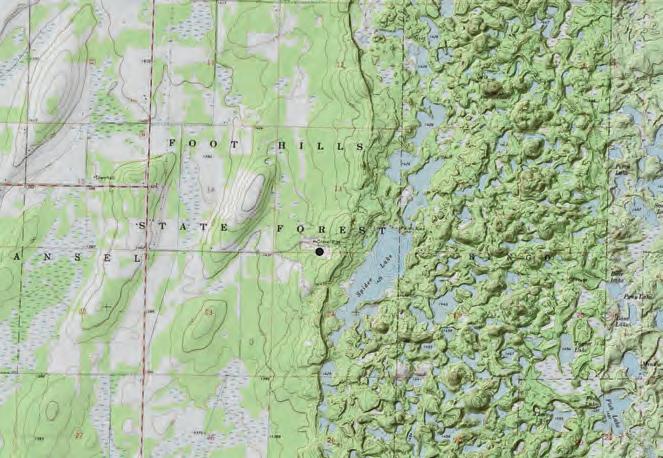
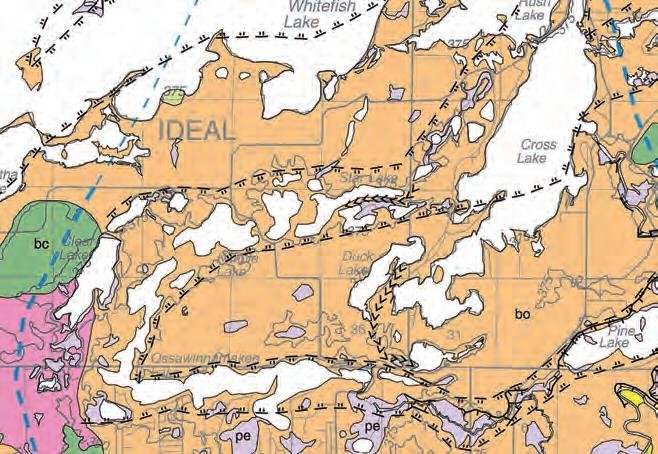
Contributed / Carrie Jennings

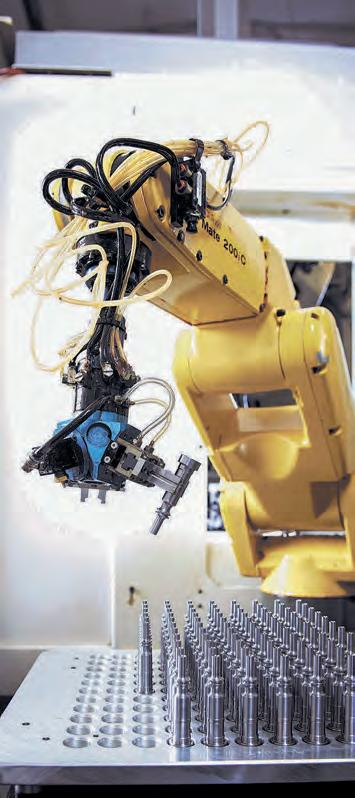
the relative hardness of the rock and its faults, joints and structural features.
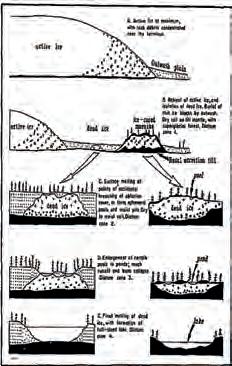
Ice lobes deposited sediment over Minnesota and reshaped the landscape, filling in old depressions and creating new ones. Long lakes and chains of lakes, especially those that are deep and located in irregular terrain, most likely had an origin as a subglacial tunnel that drained water from beneath the glacier in large flood events.
They may be adjacent to extensive sand plains, which they fed with meltwater and sand.












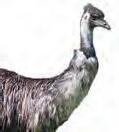



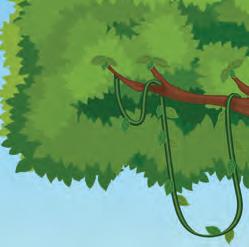

If you have good depth-finding equipment you may also see a central ridge. This is an esker, or snake-like ridge in Gaelic. It is made of sand and gravel and is the final deposit of the subglacial river as the flow was waning and the tunnel closing in.
Examples of these lakes all trending to the southwest are: Crow Wing Chain of Lakes beginning near Akeley and discharging near Park Rapids; Long Lake and Hinds Lake discharging near Horton; Twin Lakes and Blueberry Lake; Stocking Lake and Menahga Lake; Wolf to Duck Lake; Mow to Tripp lakes near Badoura; Upper and Lower Whitefish and surrounding lakes; Cross to Ossawinnamakee lakes; Star, Bass, Kimble and Strawberry lakes; Mud, Grass and Clear lakes; Pickerel, O’Brien, Velvet and Big Bird lakes; Ruth-Trout and Mary, Emily and Dahler lakes; Gull and surrounding lakes; Clearwater, Eagle, Nokay to Upper South and South Long lakes.
Large, round and generally shallow lakes are most likely depressions created by glacial advance and then impounded by a moraine dam — the ridge of material pushed up in front of a glacier. These lakes may show signs of active ice movement on their bottoms.
Mille Lacs Lake is the best example of this kind of lake. It has drumlins -- another Gaelic word -- or streamlined hills that may be eggto cigar-shaped. These hilly features on the lake bottom attract certain fish species.





Irregular topography created by dirty, melting glaciers is especially easy to imagine this time of year as large piles of snow melt in the corners of parking lots. The irregular piles of debris left behind are much smaller but similar in origin to the landscapes created behind the moraine as dirty, stagnant ice melted.
The small depressions in the landscape are locations of wetlands and lakes where the water table is high enough.
This is the origin of the lake and wetlanddotted landscape in and around the area from Hackensack to the west side of Backus
through the Foot Hills State Forest and south along the hilly forested moraine to Pillager.
Another area like this runs east-west on the north side of Mille Lacs from Crosby to Deerwood through Aitkin to Glen.
The concept of a kettle lake or lake formed by the burial of a single block of ice is what is commonly taught but is probably the least likely kind of lake to survive very long. This is simply because they are not that large and the fate of all lakes is to fill in.
Some believe that many lakes are formed as "kettle lakes" - that is, lakes formed after mounds of ice from glaciers are buried in soil and later melt, collapsing the soil above and creating a low spot that fills with water and becomes a lake, though these formations don't have much longevity.
Contributed / Carrie Jennings
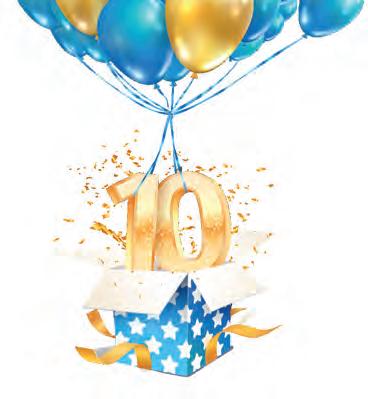
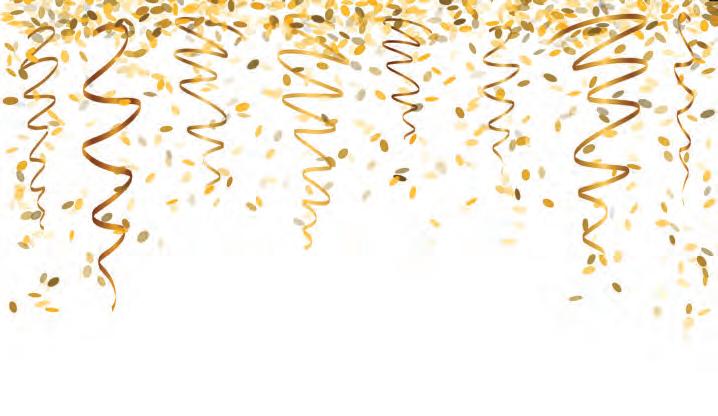
“Large, round and generally shallow lakes are most likely depressions created by glacial advance and then impounded by a moraine dam — the ridge of material pushed up in front of a glacier. These lakes may show signs of active ice movement on their bottoms. Mille Lacs Lake is the best example of this kind of lake.”
- Carrie JenningsCARRIE JENNINGS, is the research and policy director at the Freshwater Society, a nonprofit organization in St. Paul.
LAKE MAP SPONSORED BY: Ruttger’s Bay Lake Resort 25039 Tame Fish Lake Rd Deerwood, MN 800-450-4545 ruttgers.com

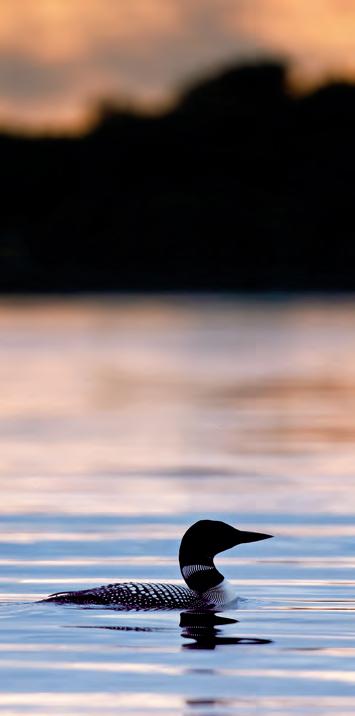
TO SPONSOR THIS LAKE CALL 218-855-5895
LAKE MAP SPONSORED BY:
TO SPONSOR THIS LAKE CALL 218-855-5895
506 James St, Brainerd 218-829-4705 BrainerdDispatch.com
TO SPONSOR THIS LAKE CALL 218-855-5895
SCAN FOR LAKE MAP & INFO
TO SPONSOR THIS LAKE CALL 218-855-5895
LAKE MAP SPONSORED BY:
506 James St, Brainerd 218-829-4705 PineandLakes.com
TO SPONSOR THIS LAKE CALL 218-855-5895
SCAN FOR LAKE MAP & INFO
TO SPONSOR THIS LAKE CALL 218-855-5895
Lakes
LAKE MAP SPONSORED BY: Minnesota Inboard Water Sports 15779 Edgewood Dr Baxter, MN 218-822-4401 mninboard.com
TO SPONSOR THIS LAKE CALL 218-855-5895

TO SPONSOR THIS LAKE CALL 218-855-5895
TO SPONSOR THIS LAKE CALL 218-855-5895
LAKE MAP SPONSORED BY:
506 James St, Brainerd 218-829-4705 BrainerdDispatch.com
TO SPONSOR THIS LAKE CALL 218-855-5895
TO SPONSOR THIS LAKE CALL 218-855-5895
TO SPONSOR THIS LAKE CALL 218-855-5895
TO SPONSOR THIS LAKE CALL 218-855-5895
TO SPONSOR THIS LAKE CALL 218-855-5895
TO SPONSOR THIS LAKE CALL 218-855-5895
SCAN FOR LAKE MAP & INFO
TO SPONSOR THIS LAKE CALL 218-855-5895
TO SPONSOR THIS LAKE CALL 218-855-5895
TO SPONSOR THIS LAKE CALL 218-855-5895
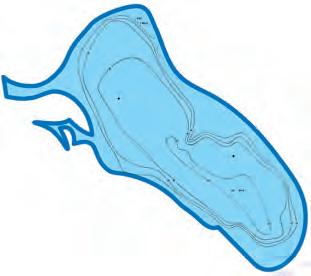
TO SPONSOR THIS LAKE CALL 218-855-5895
TO SPONSOR THIS LAKE CALL 218-855-5895

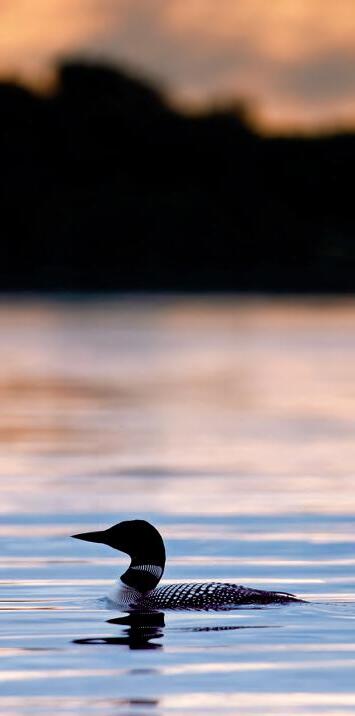
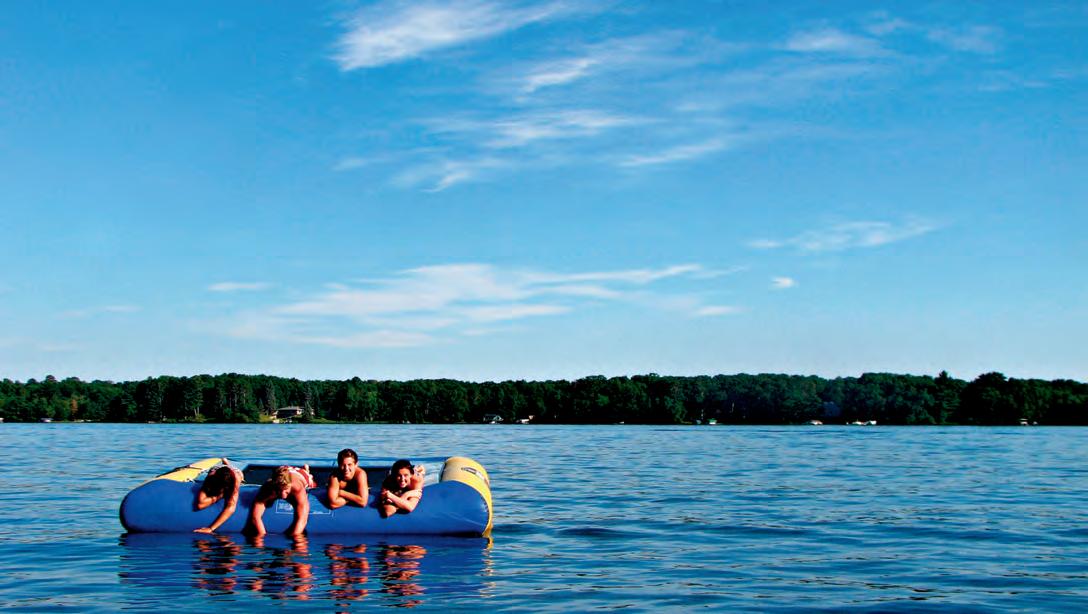



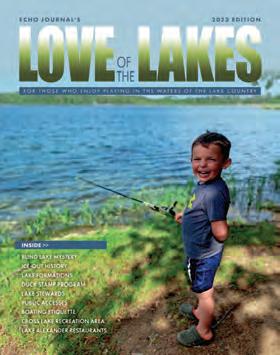

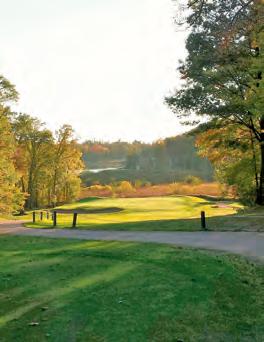
Animal House

218-961-7387
www.nisswapets.com
24463 Hazelwood Dr, Nisswa, MN 56468
Your pets are our priority. Serving the Brainerd Lakes area since 2008. Come in and let our friendly, knowledgeable staff help you today.
Bathtub Refinishers
218-828-8600
Bathtubrefinishingusa.com

PO Box 828, Nisswa, MN 56468
Recoating, color changes, repair specialists of bathtubs, clawfoots, showers, countertops, fiberglass, tile, porcelain, cast iron. Saves time, money and can be completed in one day!
Bertha Boatworks

218-543-4100
Berthaboatworks.com
6846 County Road 16, Pequot Lakes, MN 56472
We are a full-service marina on the Whitefish Chain. High end pontoon rentals available. Old Milwaukee Food Truck Weekends Memorial Day to Labor Day.
Boats and Beyond Rentals

218-963-7700
www.boatsandbeyondrentals.com
4758 Co Rd 77, Nisswa, MN 56468
All season rentals: pontoons, tritoons, ski boats, jet skis, fishing boats, & fishhouses. Private marina on Gull Lake or delivered to your lake! Family owned/operated!
Canvas Tech
218-587-2279
www.canvastechmn.com
2718 MN-371, Pine River, MN 56474
Here for all of your canvas needs. Boat Tops • Covers • Upholstery • Auto & Boat Interiors • Custom Canvas Work.
Craguns Resort
218-316-7005
www.craguns.com
11000 Craguns Dr, Brainerd, MN 56401
One of Minnesota’s largest year round vacation destinations. With 1 mile of lakeshore, beaches and amazing views. Indoor pool, dining, activities and more!
Crow Wing Kayaks


218-692-1200
crowwingkayaks.com
36414 Co Rd 66, Crosslake, MN 56442
We are your local, family-owned and operated kayak sales and rental shop. Our kayaks are 100% American made and only available from our shop in Crosslake. We also rent paddleboards and lake floats.
Cub Foods Baxter
218-828-4601, 218-828-1816
www.cub.com

14133 Edgewood Drive, Baxter, MN 56425
417 8th Avenue NE, Brainerd, MN 56401
With two convenient locations to serve you on 371 in Baxter and 210 in Brainerd, Cub has all you need. Online ordering also available.
Cuyuna Country Auto Care

218-546-5577
www.cuyunacountryauto.com
22014 Serpent Shores, Deerwood, MN 56444
We are the automotive service center you can trust, providing quality workmanship with honest advice, fair prices, and genuinely good auto parts since 1993.
Ernie's on Gull
218-829-3918
www.erniesongull.com
10424 Gull Point Road, East Gull Lake, MN 56401
Unparalleled views of Gull Lake all in a casual fun atmosphere makes Ernie’s on Gull a must stop when visiting the Lakes Area.

Falls Flag Source

218-963-1502
www.telescopingflagpoles.com
5112 Northstar Ln, Nisswa, MN 56468
Family owned business featuring flags from all nations, novelty flags, sports flags and more. We also have telescoping flagpoles and flagpole accessories.
First National Bank North
218-547-1160
www.fnbnorth.com
A family owned community bank proudly serving customers in North Central Minnesota since 1902. Locations in: Akeley, Backus. Baxter, Crosslake, Hackensack, Longville, Nisswa, Pequot Lakes, Remer, Walker.
Hytec Construction
218-829-8529
www.hytecconstruction.com

11360 MN-371BUS, Brainerd, MN 56401
A full-service design/build firm in the Brainerd Lakes area, specializing in commercial and residential construction. We provide exceptional craftsmanship to the highest standard.
Immaculate Heart Church
218-692-3731
www.crosslakecatholic.com
35208 Co Rd 37, Crosslake, MN 56442
Immaculate Heart Church is a vibrant Catholic parish in beautiful Crosslake on the Whitefish Chain of Lakes in north-central Minnesota. Truly, all are welcome.

Jim Christensen-Kurilla

218-820-2147
LakeshoreBroker.com
PO Box 828, Nisswa, MN 56468
Specializing in Lakeshore throughout the beautiful Brainerd Lakes area.
Lake Area Docks & Lifts of Brainerd & Crosslake
218-825-3874
www.LakeAreaDocks.com

18324 St. Hwy 371, Brainerd, MN 56401
We are your #1 choice for Docks, Boat Lifts and accessories in the lakes area. We operate five locations including our Brainerd and Crosslake stores.
Minnesota Wake
218-692-4222
www.minnesotawake.com
35056 Co Rd 3, Crosslake, MN 56442
We match lake goers with boats and efoils that are a good value, reliable, perform the way they should, and are easy and safe to operate.
MK Auto Body


218-963-2991
3622 Co Rd 77, Nisswa, MN 56468
Providing quality auto collision repair services to the Nisswa area for over 26 years.
218-822-4401
mninboard.com
15779 Edgewood Drive, Baxter, MN 56401
Minnesota Inboard Water Sports is a family-owned boat dealership specializing in Malibu and Axis Boat Sales, Service, Storage, Fiberglass Repair and Pro Shops since 1992.
Nisswa Dock
218-863-2584
www.nisswadock.com
24428 Smiley Rd, Nisswa, MN 56468
Nisswa Dock Co. is a family owned and operated business, with over a century of combined experience. Let our experience work for you and your family...you will be glad you did!

John Nolan - Realtor/Broker
218-820-7515
nolanteam.com
23590 Smiley Rd, Nisswa, MN 56468
Specializing in Lakeshore throughout the beautiful Brainerd Lakes area.
Pequot Lakes Supervalu
218-568-5001
www.pequotlakessupervalu.com
30581 Patriot Ave, Pequot Lakes, MN 56472
Take the north or south exit off 371 onto Patriot Avenue in Pequot and you are there. We have fresh produce, bakery, and meat items.
Pequot Manufacturing
218-568-8069
www.pequottool.com
3457 Veterans Street, Pequot Lakes, MN 56472
Pequot Manufacturing is a thriving precision manufacturing shop. We offer challenging and rewarding careers with a focus in Engineering, Robotics, Machining, and Support Operations.
Schaefer's Foods
218-963-2265
SchaefersFoods.com

23962 Smiley Road, Nisswa, MN 56468
Schaefer’s Foods features the best meat, produce and delicious Grandma Bettie Jane’s Pies! Our friendly staff, carry-out service and selection make us a local favorite!
Shannon's Auto Body
218-829-6764
www.Shannonsautobody.com
13540 Ironwood Drive, Brainerd MN 56401
124 8th Ave NE, Brainerd MN 56401
Shannon’s Auto Body has provided auto body repair in Brainerd, MN since 1996. We know what it takes to fix your vehicle and are proud to be the name customers trust for quality collision repair. Our professional auto technicians are passionate about auto body repair and take great pride in what we do.

Timberwood Church
218-967-8888
timberwoodchurch.org
23084 MN-371, Nisswa, MN 56468
Join us Sundays at 9 and 10:30AM for worship. Experience bible-based teaching, contemporary music, kids programming and coffee! Reeds Market
218-692-2711
www.reedsmarket.com

35561 Co Rd 3, Crosslake, MN 56442
Offering quality meats, a large produce section, and delicious backery treats along with a variety of brands to help you save money without skimping on quality!
Ruttger's Bay Lake Lodge
218-678-2885
www.ruttgers.com

25039 Tame Fish Lake Rd, Deerwood, MN 56444
A Family tradition for the past 125 years. We offer something for everyone, great fishing, golf, food, shopping, lodging and more.
Safari North LLC
218-454-1662
www.safarinorth.com
8493 MN HWY 371, Brainerd, MN 56401
Promoting conservation and preservation through safe, affordable, and memorable experiences with a quality recreational and educational environment dedicated to wildlife care and conservation.
Whitefish Area Property Owners Association (WAPOA)
www.wapoa.org
PO Box 342, Crosslake, MN 56442
WAPOA works with citizens, groups, associations, and government units to conserve and improve the quality of our waters for the benefit of present and future generations.
Whitefish Chain Yacht Club
612-499-8828
www.WCYC.info
PO Box 377, Crosslake, MN 56442
Since 1952 the WCYC promotes 'Safety on the Water' with programs that include maintaining the navigational buoys on the Whitefish Chain of Lakes, sponsoring boating instruction and free youth swimming sessions.

